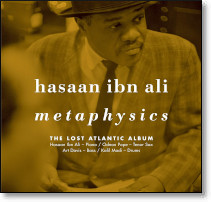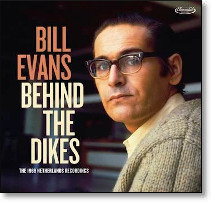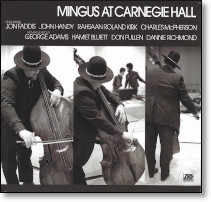Latest
2024
Dec
Nov
Oct
Sep
Aug
Jul
Jun
May
Apr
Mar
Feb
Jan
2023
Dec
Nov
Oct
Sep
Aug
Jul
Jun
May
Apr
Mar
Feb
Jan
2022
Dec
Nov
Oct
Sep
Aug
Jul
Jun
May
Apr
Mar
Feb
Jan
2021
Dec
Nov
Oct
Sep
Aug
Jul
Jun
May
Apr
Mar
Feb
Jan
2020
Dec
Nov
Oct
Sep
Aug
Jul
Jun
May
Apr
Mar
Feb
Jan
2019
Dec
Nov
Oct
Sep
Aug
Jul
Jun
May
Apr
Mar
Feb
Jan
2018
Dec
Nov
Oct
Sep
Aug
Jul
Jun
May
Apr
Mar
Feb
Jan
2017
Dec
Nov
Oct
Sep
Aug
Jul
Jun
May
Apr
Mar
Feb
Jan
2016
Dec
Nov
Oct
Sep
Aug
Jul
Jun
May
Apr
Mar
Feb
Jan
2015
Dec
Nov
Oct
Sep
Aug
Jul
Jun
May
Apr
Mar
Feb
Jan
2014
Dec
Nov
Oct
Sep
Aug
Jul
Jun
May
Apr
Mar
Feb
Jan
2013
Dec
Nov
Oct
Sep
Aug
Jul
Jun
May
Apr
Mar
Feb
Jan
2012
Dec
Nov
Oct
Sep
Aug
Jul
Jun
May
Apr
Mar
Feb
Jan
2011
Dec
Nov
Oct
Sep
Aug
Jul
Jun
May
Apr
Mar
Feb
Jan
2010
Dec
Nov
Oct
Sep
Aug
Jul
Jun
May
Apr
Mar
Feb
Jan
2009
Dec
Nov
Oct
Sep
Aug
Jul
Jun
May
Apr
Mar
Feb
Jan
2008
Dec
Nov
Oct
Sep
Aug
Jul
Jun
May
Apr
Mar
Feb
Jan
2007
Dec
Nov
Oct
Sep
Aug
Jul
Jun
May
Apr
Mar
Feb
Jan
2006
Dec
Nov
Oct
Sep
Aug
Jul
Jun
May
Apr
Mar
Feb
Jan
2005
Dec
Nov
Oct
Sep
Aug
Jul
Jun
May
Apr
Mar
Feb
Jan
2004
Dec
Nov
Oct
Sep
Aug
Jul
Jun
May
Apr
Mar
Feb
Jan
2003
Dec
Nov
Oct
Sep
Aug
Jul
Jun
May
Apr
Mar
Feb
Jan
2002
Dec
Nov
Oct
Sep
Aug
Jul
Jun
May
Apr
Mar
Feb
Jan
2001
Dec
Oct
Sep
Aug
Jul
Jun
May
Apr
Mar
Feb
Friday, July 30, 2021
Speaking of Which
Tweet: Speaking of Which: Michael Lewis's pandemic story, how the Republican obsession with winning distorts everything they do, how rich was Truman, how liberals fail to understand Cold War, free news, the opioid crisis misdirection, whistleblowers, etc.
I finished reading Michael Lewis's book, The Premonition: A Pandemic Story, where he follows a circle of public health officials and researchers who figured out what was happening with Covid-19 early enough they could come up with a plan for fighting it before it got out of hand, then failed to implement that plan -- because, well, that part isn't so clear. Partly, the people who mucked up the response weren't nearly as interesting as the brilliant weirdos he found. Partly, the institutional biases run much deeper than he has patience for.
You get a hint of this when he talks about the "swine flu fiasco" of 1976, when the CDC's mass vaccination program had to be halted due to side-effects, while the flu itself petered out into something far short of the threatened pandemic. That's when the tables turned and the CDC was taken over by political appointees, and, well, you can see where that went. Lewis's previous book, The Fifth Risk, was effectively a bravo defense of public servants who work in (and sometimes in spite of) government bureaucracy, but this book feels more like The Empire Strikes Back, with the Empire as faceless and sinister as ever, and the heroes regrouping in the shadows of the private sector. Well, at least one hero, Charity Dean, who resigned from her post near the top of California's public health office to raise venture capital for a startup competing for scarce public health dollars. The last few pages read like her prospectus. (Although, it should be noted, that much of what Lewis has to say about private companies during the pandemic, including most hospitals and the big testing labs, is pretty damning. He does cite some companies that stepped up to the challenge civic-mindedly, but they were mostly exceptions.)
So I came away feeling I've read the wrong book on the pandemic. There will in due course be dozens or hundreds of them, and I don't been any great urgency. I can do a preliminary sort next time I do a Book Roundup. Meanwhile, I have a couple of books on Trump and the Republicans that may help me gauge what is and isn't understood about the current political climate: Steve Benen's The Impostors: How Republicans Quit Governing and Seized American Politics, and Adam Serwer's The Cruelty Is the Point: The Past, Present, and Future of Trump's America. I'm starting with Benen, because I'm more deeply disturbed by the Republican Party than I am by Trump himself, and not just by the former's slavish devotion to the latter. (By the way, Serwer's book starts with a great truth: "Many people woke up on November 9, 2016, feeling like their country hated them.")
While reading the Lewis book, I came up with simple formulation that goes far toward explaining the central truth of US politics:
Republicans have decided that the only thing that matters is who controls the levers of power. Therefore, every issue matters only insofar as it can help or hurt you in the pursuit of power. They are more likely to describe this in terms of fear than greed.
Republicans view the world as a zero-sum game, where you can only win at someone else's expense, and no one else can improve their stakes except to your detriment. This makes them desperate and paranoid.
Maybe the points should be reversed, or merged into one. Everything Republicans say or do fits into this mold, which is why everything they say or do is wrong, and ultimately damaging. A reasonable person may think of natural disasters, especially the pandemic, as events that transcend political party, where smart people of good will can devise solutions that reduce harm and possibly even benefit nearly all people. That's how Democrats think, but it's not how Republicans think -- and our political system makes it harder to make things than to break them (indeed, you can view it as a special case of entropy).
This is not to say that there is no substance to conservative values. Republicans have been pretty flexible about their principles, but they've also locked themselves into some positions that are unpopular now and likely to hurt them even more in the future. And I don't just mean that they've aligned themselves with losing interests, like war and coal. Suspecting enemy preferences, they've turned against most civil servants, especially teachers, and their subject matter, including education in general and science in particular. Benen seems to focus on the party's "post-policy" shallowness, but other keys to their inability to govern include their contempt for knowledge and skill, their willingness to indulge predatory businesses, and their utter indifference to the fate of most Americans, including much of what they call their "base."
No idea how often I'll do this, but a few things came to my attention recently, prompting these notes.
I'm not trying to cover everything here, or even very much. I don't have any interest in the January 6 hearings -- I'm not even reading those reports. I don't care a whit about the Olympics, although I will note that it seems like once every four years we suddenly warm up to the great diversity of the American people. I care more about the infrastructure bill (or two), but not in sweating the details. While I've read a fair amount about Covid-19 recently, I'm not up to trying to sort it out here -- other than to say that the map looks significantly worse.
Paul Campos: The Truman Show: "How the 33rd president finagled his way to a post-White House fortune -- and created a damaging precedent." This caught my eye because Wikipedia has a List of presidents of the United States by net worth, which I consulted when I was thinking about writing a book on political eras. One contrast I wanted to make was between Donald Trump, supposedly the richest US president ever, and the previous list-topper, George Washington (now number two on the list, after everything was converted into recent dollar values). Despite their great wealth -- relative to their peers, Washington may have ranked even higher than Trump -- the two could hardly have been more different: Washington famously tried to appear disinterested (avoiding any suspicion that his wealth was a consideration for his actions), while Trump was the exact opposite. I noted then that Harry Truman was dead last on the list. The list has changed since the last time I looked at it: Trump was added at the top, as was Biden a bit below median (in 25th, between Eisenhower and Ford); recent presidents have climbed fast up the list (Clinton to 9, Obama 12, GW Bush 13); and the nine sub-millionaires were sorted by years (which left Truman last). Even if you accept Campos' valuations, Truman would only rise about 15 spots. And if you look at the various pleas and ploys Truman employed, it's interesting that he looked more to the public for graft than to "the malefactors of great wealth," which is where more savvy politicians like Lyndon Johnson and Bill Clinton turned, much more lucratively. While the absolute ranking on the list doesn't seem to matter much, it would be interesting to see wealth broken out in three columns: at inauguration time; when departing the White House; and peak before death (or now). One thing that's notable here is that presidents who died in office skew way down the list.
Jonathan Chait: Leftists and Liberals Are Still Fighting Over the Cold War. The occasion for this seems to be the protests in Cuba and Florida, which the latter claim to be aligned. The US left is expected to condemn Cuba, Venezuela, and other outposts of the "illiberal left," which has largely been forced by US sanctions to retrench into a repressive, defensive crouch. This is reminiscent of the posture of many liberal intellectuals during the Cold War era. This position was wrong then, and wrong now, but persists because it continues to sucker people of good will into bad politics. (I'm inclined to count Joe Biden and his foreign policy team in that group, although I know people who wouldn't give them the benefit of doubt.) It's bad politics because it doesn't help most of your fellow Americans, and because it doesn't help the foreign people you're trying to sympathize with either. There's nothing wrong with wishing other people brighter futures. Indeed, every time I see a news article about an election between left and right parties in another country, I root for the left -- even if I don't fully approve, because fairer and more just societies can only come from the left, and I believe that politicians who identify with the people are more likely to help them (in the long run, even if not soon). But best wishes is all I can muster, because I know that I have no say in how other countries are governed. (Hell, I hardly have any say in how my own is run.) People who want to do more are overreaching, probably out of some deep-seated hubris. I'm not saying that you shouldn't speak out when you see injustices elsewhere, but nations should accept other nations as they are -- at least as long as they don't pose existential threats to other nations (as the US has done a few dozen times in my lifetime, so we're more in need of correction than most countries).
To understand why this attitude hurts most Americans, it helps to recall the most basic principles behind the Cold War. At the end of WWII, the European colonial system was bankrupt, and the US was the only viable capitalist power. The threat was that people all around the world, including in the broken states of Europe, might rise up (either democratically or through revolution) and take popular control of their own nations. The idea was to replace colonial power with corporate dominance in a system linked together by American financial and military might. The Soviet reaction was passive-aggressive: most often they retreated, but they fought back on occasion, enough that they could be characterized as a threat to democracy and freedom (even if most American client regimes had neither). But this wasn't just a struggle to extend the viability of imperialism (by cutting a few local elites in on a share of the loot). As capitalists gained power around the world, they gained political power at home. Starting with the "red scare," they purged unions of their most dedicated and principled leaders. The tamed unions could then be used to undermine the left in "allied" countries, but more importantly they became ever more impotent, until they in turn could be broken. The Cold War was as much a war against the working class at home as it was abroad. Throughout this period, a number of liberal politicians and intellectuals regularly sided with the Cold Warriors. For a long while doing so was obligatory to avoid the "red" smear.
The irony is that as communist regimes reformed, especially around 1990, the last holdouts were the nations the US imposed the strictest and most debilitating sanctions on: Cuba, Vietnam, North Korea, China. Some became liberal democracies with mixed economies, some fell into chaos or got snatched up by functionaries-turned-kleptocrats. China and Vietnam reformed their economies without surrendering party control. I was thinking no one predicted this, but it turns out that David Ben-Gurion predicted as much back in the 1950s. By then he was trying to align Israel with America, and his reputation as a socialist was in tatters, but he seems to have understood that equality and democracy were always at the heart of the left. Indeed, that's what the left struggles for even today, with (or without) the help of self-identified liberals. One thing is clear: the demonstrations in Cuba and in Florida are different and opposed things. If you do wish to help the Cuban people determine their own future, you should oppose the "sympathy" protests in Florida, which are meant to rally Americans into attacking and visiting great harm on Cuba. And you should support efforts to normalize US-Cuban relations.
Alex Dalton: The Former Harvard Law Dean Who Wants Government to Save the News Business: Martha Minow, the book is Saving the News: Why the Constitutino Calls for Government Action to Preserve Freedom of Speech. We're a million miles away from entertaining such notions, but good to see that someone is articulating them, especially on the basis of constitutional rights, including the chartering of government to "form a more perfect union" and "promote the general welfare." As I recall, Thomas Jefferson once argued for pubic support of higher education not because we needed skilled workers (although nowadays we do) but because education makes for better citizens (something we seem to be in even more desperate shortage of). Republicans will be up in arms, because they see news and education as domains for thought control (which is why they finance their own). Capitalists will worry that government support will reduce their ability to profit from their news monopolies. And any time government gets involved, people will gripe about how their taxes are being spent -- whether to promote socialism or practice racism, everyone will be offended until no one is satisfied. Still, we desperately need fair and objective news, freely available to everyone. Why can't we figure out how to do that?
German Lopez: The opioid epidemic isn't unsolvable: The death count due to opioid overdoses shot up significantly last year, so much so that it became (actually remained) a major factor in declining life expectancy. Yet this is one public health crisis I have little interest in. Part of that may be that the victims are discrete (unlike the pandemic, where they infect others). But it's also because the way "experts" define the problem is so misleading. What we really have is a pain problem. Opioids are in many cases the simplest, most effective solution to pain, but only if they are administered with much more care than our profit-seeking health care system is capable of. Lopez is smart and knowledgeable, but look how he frames the "solutions":
- Restricting the drug supply
- More and better addiction treatment
- Harm reduction
- Address root causes
In other words, start with prohibition, then give lip service to a few other mantras that will be forgotten almost immediately. The obvious problem with the first is that it's already being done quite seriously, and it hasn't worked. On the one hand, people with serious pain are hard-pressed to work the system to get relief. On the other hand, the black market has grown to take advantage of the shortfall, often with faulty product as well as no useful support or service. The other points are increasingly hard, expensive, and/or nebulous. Moreover, the right, despite occasional libertarian pretensions, is fond of prohibition -- it furthers the police state they hold so dear -- they haven't the slightest interest or desire in the other three (i.e., they don't like care, they don't care about risk reduction, and they reject any charge that the system might be at fault). But the system is broken -- so deep you're never going to be able to isolate opioid overdoses as something that can be fixed without overhauling the whole system. That's basically why I have so little patience for people who single out this problem. Give us a health care system that serves everybody, one that treats pain in all its complexity, because we as a people care about each and every one of us. Even so, you're not going to make pain vanish. The best you can hope for is that more people will be able to live with it, because it will be viewed within the context of life, not just as some racket to make money off of.
Kerry Howley: Call Me a Traitor: "Daniel Hale exposed the machinery of America's clandestine warfare. Why did no one seem to care?" Long story, lots about drone warfare. For an update, see Josh Gerstein: Leaker of drone secrets gets 45 months in prison. Howley previously wrote 'The World's Biggest Terrorist Has a Pikachu Bedspread': all about Reality Winter.
Ed Kilgore: Democrats Can't Out-Organize a Gerrymander -- or Outflank Joe Manchin: Argues that Democrats "have to play the cards dealt to them by the system as it currently exists." With razor-thin majorities, that means you can't get lots of things done that are needed. That shouldn't mean giving up. If anything, it means it's all the more important to focus on popular measures and show that you're trying. And make it clear that it's the Republicans who are blocking the government help that the people want and need. Take that into the 2022 election, and use that message to elect many more Democrats. Sure, the cards are stacked against Democrats, but they should have a popular program, especially versus the Republican legacy of doom. By the way, although it never hurts to point out how the Republicans are trying to rig elections, I'm not sure that reducing the number of voters works against Democrats. It mostly gets rid of a lot of low-information, low-commitment voters, who as 2020 showed are as likely to fall for crackpot theories as not. The idea that low turnout favors Republicans became cemented in 2010, when it was possible to explain Democratic losses by voter indifference after the Democrats achieved very little with pretty large majorities. But the 2010 dropoff from 2008 was almost exactly the same as the 2006 dropoff from 2004, except it cut the opposite way.
Paola Rosa-Aquino: New CDC Data Shows the Pandemic Crushed U.S. Life Expectancy. Note that the drop exceeds what can be directly blamed on the pandemic -- although demographic studies suggest that "excess deaths" were up some 50% more than the official Covid-19 body count. Next article I looked at after this one was Zak Cheney-Rice: The GOP's 2024 Strategy Has a High Body Count.
Monday, July 26, 2021
Music Week
 |
 |
 |
 |
 |
 |
 |
Expanded blog post, July archive (in progress).
Tweet: Music Week: 45 albums, 8 A-list (one bumped from A- to A), most surprises, not least from the songster who first caught my attention when I was starting out as a rock critic.
Music: Current count 35900 [35855] rated (+45), 210 [212] unrated (-2).
Did my cutoff Sunday evening, while I was in the middle of looking at older, missed John Hiatt albums, so while tempted to move the rest forward to keep them together, expect them next week. One thing I did notice after the review was that one of the more memorable songs on the new one appeared on an old album. Good chance of more recycled songs, which may contribute to the relative high quality here. When I've noticed, Hiatt's New West albums have been pretty good. I gave an A- to his Here to Stay: Best of 2000-2012, and to Terms of My Surrender (2014), as well as the new one.
I mentioned below seeing Hiatt in his native habitat, but maybe I should expand on that story. Shortly after I started writing for the Village Voice, Robert Christgau send me Hiatt's first two albums. He wound up grading them B, but he must have suspected that I might get into them and write something interesting. Didn't happen, at least not in time, but eventually they clicked for me: a solid A- for Hangin' Around the Observatory, and an A for Overcoats (on my all-time list; for a review see my Terminal Zone spotlight reviews -- there's also a review there of Hirth From Earth, another B+ oddity Christgau sent me, which led to me reviewing Hirth Martinez's second album).
I was back in Wichita at the time, having retreated from St. Louis after I got sick and lost my job. One of my closest St. Louis friends had moved to Washington, D.C., and wanted me to join his commune. I agreed. He flew to Wichita, and we drove back to D.C., with stops in St. Louis and Indianapolis, where another St. Louis friend -- one of my major music mentors -- had returned after graduating college. He knew I liked Hiatt, and found him performing in a suburban bar, so we checked him out. He was solo, playing guitar and some keyboard, songs from the two albums I by then knew inside and out. The albums had band arrangements, but the songs were even more striking in their stark immediacy.
D.C. turned out to be a bust. I got sick again, returned to Wichita, floundered a while, eventually got a job, saved some money, and (after an exploratory trip) decided to move to New York. Don Malcolm and I published Terminal Zone in the interrim, but I was disappointed in the lack of interest we received in New York. It was a rude introduction to the vagaries of commerce, and I didn't handle it well -- may be one reason why I still regard making money as a piss poor excuse to do anything. (Malcolm went on to publish a second TZ, and maybe a third, without me.) I wrote a few reviews for the Voice, but never got around to Hiatt. John Piccarella, a freelancer I most admired, pitched a Hiatt piece, but he got stuck with Hiatt's first mediocre album, Warming Up to the Ice Age (kind of like I got stuck with a wobbly BTO album for my debut). After that, I lost interest, and didn't bother with his well-received A&M albums. But he's still around, and holding up better than most.
One cluster of new records this week is a bunch of Astral Spirits downloads. I get a lot more download links and offers than I follow up on, but there were a couple there I felt I should try to listen to, and wound up downloading the whole stack.
The East Axis promotion comes after receiving a CD. I had a pretty good idea that's where it would wind up after reviewing it off Napster (you can also hear it complete on Bandcamp). The Bill Evans and Roy Hargrove/Mulgrew Miller 2-CD sets were most likely helped by having physical packages, which allowed me to spread out my attention (as well as to see the booklets, although my eyes don't encourage close study). I don't consciously favor CDs over downloads or streams, but sometimes it works out that way.
I'm likely to have a short "Speaking of Which" later this week. Got a couple things I want to get off my chest. I'm half way through the Michael Lewis Premonition book. I'm not the least bit inclined to rehabilitate the legacy of GW Bush, but at least he allowed at least some public servants to do their job. Meanwhile, Laura is playing the audible of Michael Wolff's Landslide. It's a "fish starts to rot at the head" story, with everyone close to Trump increasingly implicated. I've seen scattered speculation about how much worse shape we'd be in if we had a Trumpian leader who was actually competent, but I wonder if incompetence isn't something that endears Trump to his followers.
New records reviewed this week:
- [Ahmed]: Nights on Saturn (Communication) (2019 [2021], Astral Spirits): [dl]: A-
- Michaël Attias/Simon Nabatov: Brooklyn Mischiefs (2014 [2021], Leo): [r]: B+(**)
- Mandy Barnett: Every Star Above (2019 [2021], BMG): [r]: B
- Olie Brice/Binker Golding/Henry Kaiser/N.O. Moore/Eddie Prévost: The Secret Handshake With Danger: Vol. One (2020 [2021], 577): [r]: B+(*)
- Eric Church: Heart (2021, EMI Nashville): [r]: B+(**)
- Eric Church: Soul (2021, EMI Nashville): [r]: B+(*)
- Clairo: Sling (2021, Fader/Republic): [r]: B+(*)
- Harold Danko: Spring Garden (2019 [2021], SteepleChase): [r]: B+(**)
- Joel Frahm: The Bright Side (2021, Anzic): [r]: B+(**)
- Frisque Concordance: Distinct Machinery (2017-18 [2021], Random Acoustics, 2CD): [bc]: A-
- Rob Frye: Exoplanet (2021, Astral Spirits): [dl]: B+(***)
- Rhiannon Giddens With Francesco Turrisi: They're Calling Me Home (2021, Nonesuch): [r]: B+(***)
- Mats Gustafsson/Joachim Nordwall: Shadows of Tomorrow/The Brain Produces Electric Waves (2019-20 [2021], Astral Spirits, EP): [dl]: B
- John Hiatt With the Jerry Douglas Band: Leftover Feelings (2021, New West): [r]: A-
- Dylan Hicks: Accidental Birds (2021, Soft Launch): [r]: B+(**)
- Rocco John Iacovone/Phil Sirois/Tom Cabrera: Synchronics (2021, Unseen Rain): [r]: B+(**)
- Jaubi: Nafs at Peace (2021, Astigmatic): [bc]: A-
- Khrysis: The Hour of Khrysis (2021, Jamla): [r]: B+(**)
- Angélique Kidjo: Mother Nature (2021, Decca): [r]: B
- Lost Girls: Menneskekollektivet (2020 [2021], Smalltown Supersound): [r]: A-
- Roscoe Mitchell/Mike Reed: The Ritual and the Dance (2015 [2021], Astral Spirits): [dl]: B+(***)
- Liudas Mockunas/Arfvydad Kaziauskas: Purvs (2020 [2021], Jersika, 2LP): [lp]: B+(**)
- The Modern Jazz Trio With Jerry Bergonzi: Straight Gonz (2021, AMM): [r]: B+(**)
- Aaron Novik: Grounded (2020 [2021], Astral Spirits): [dl]: B+(**)
- William Parker: Painter's Winter (2020 [2021], AUM Fidelity): [r]: A-
- William Parker: Mayan Space Station (2020 [2021], AUM Fidelity): [r]: B+(***)
- Powers/Rollin Duo: Strange Fortune (2021, Astral Spirits): [dl]: B+(*)
- Andrew Renfroe: Run in the Storm (2021, self-released): [cd]: B+(**) [08-27]
- Chris Schlarb/Chad Taylor: Time No Changes (2019 [2021], Astral Spirits/Big Ego): [dl]: B+(*)
- Alex Sipiagin: Upstream (2020 [2021], Posi-Tone): [r]: B+(*)
- Wadada Leo Smith/Douglas R Ewart/Mike Reed: Sun Beans of Shimmering Light (2015 [2021], Astral Spirits): [dl]: B+(***)
- Emma-Jean Thackray: Yellow (2021, Movementt/Warp): [r]: B
- Chris Williams/Patrick Shiroishi: Sans Soleil (2021, Astral Spirits): [dl]: B+(*)
- Adrian Younge & Ali Shaheed Muhammad: Jazz Is Dead 7: João Donato (2021, Jazz Is Dead, EP): [r]: B+(**)
Recent reissues, compilations, and vault discoveries:
- Roy Hargrove/Mulgrew Miller: In Harmony (2006-07 [2021], Resonance, 2CD): [cd]: A-
- Rare.wavs (Vol. 1) ([2021], Foreign Family Collective): [r]: B+(**)
- Shem Tupe/Justo Osala/Enos Okola: Guitar Music of Western Kenya: 45s From the Archive of Shem Tupe (1960s-70s [2021], Mississippi): [bc]: B+(***)
- Vernacular: The Little Bird (2003 [2021], Astral Spirits): [dl]: B+(***)
Old music:
- Ahmed Abdul-Malik: East Meets West (1959 [1960], RCA Victor): [r]: B+(**)
- Ahmed Abdul-Malik: The Music of Ahmed Abdul-Malik (1961, New Jazz): [yt]: B+(***)
- Biz Markie: I Need a Haircut (1991, Cold Chillin'): [yt]: B+(***)
- Biz Markie: Biz's Baddest Beats: The Best of Biz Markie (1987-94 [1994], Cold Chillin'): [r]: B+(***)
- John Hiatt: Bring the Family (1987, A&M): [r]: B+(*)
- John Hiatt: The Eclipse Sessions (2017 [2018], New West): [r]: B+(**)
Grade (or other) changes:
- East Axis [Matthew Shipp/Allen Lowe/Gerald Cleaver/Kevin Ray]: Cool With That (2020 [2021], ESP-Disk): [cd]: [was: A-] A
Unpacking: Found in the mail last week:
- Wayne Coniglio & Scott Whitfield: Faster Friends (Summit)
- Dominican Jazz Project: Desde Lejos (Summit)
Saturday, July 24, 2021
Daily Log
List of mystery tv series from IMDB (sorted by popularity, selected ones we've seen at least some of):
- 11.22.63 (2016)
- 24: Live Another Day (2014)
- The Americans (2013-2018)
- Bancroft (2017-2020)
- Banshee (2013-2016)
- Beck (1997- ): all?
- Big Sky (2020)
- The Bletchley Circle (2012-2014)
- Blood (2018- )
- The Bridge (2013-2014)
- Broadchurch (2013-2017)
- The Brokenwood Mysteries (2014- )
- City Homicide (2007-2011)
- Colateral (2018)
- Dalziel and Pascoe (1996-2007)
- DCI Banks (2010-2016)
- Deadwater Fell (2020)
- Death in Paradise (2011- )
- Designated Survivor (2016-2019)
- Dirk Gently's Holistic Detective Agency (2016-2017)
- The Doctor Blake Mysteries (2013-2018)
- Dublin Murders (2019- )
- Elementary (2012-2019)
- Endeavour (2012- )
- Foyle's War (2002-2015)
- The Good Wife (2009-2016): missed early
- Gotham (2014-2019)
- Grantchester (2014- )
- Hannibal (2013-2015)
- Hap and Leonard (2016-2018)
- Hinterland (2013-2016)
- Homeland (2011-2020)
- Homicide: Life on the Street (1993-1999)
- I Am the Night (2019)
- Inspector George Gently (2007-2017)
- Inspector Lewis (2006-2015)
- The Inspector Lynley Mysteries (2001-2008)
- Inspector Morse (1987-2000): all?
- The Investigation (2020)
- The Killing (2011-2014)
- Justified (2010-2015)
- Keeping Faith (2017-2021): not last
- Last Resort (2012-2013)
- The Leftovers (2014-2017)
- Line of Duty (2012- )
- Luther (2010-2019)
- Major Crimes (2012-2018)
- Marcella (2016- ): not last
- Mare of Easttown (2021)
- Marple (2014-2013): all?
- The Mentalist (2008-2015)
- MI-5 (2002-2011)
- Midsomer Murders (1997- )
- Miss Fisher's Murder Mysteries (2012-2015)
- Mr. Mercedes (2017-2019): all?
- Mrs. Wilson (2018)
- Ms Fisher's Modern Murder Mysteries (2019- )
- Murder in the First (2014-2016)
- Murdoch Mysteries (2008- )
- My Life Is Murder (2019- )
- Mystery Road (2018- )
- New Tricks (2003-2015)
- The Night Manager (2016)
- The Night Of (2016)
- Poirot (1989-2013): all?
- Prime Suspect (1991)
- Prime Suspect 3 (1993)
- Revenge (2011-2015): missed early
- Ripper Street (2012-2016)
- Rosemary & Thyme (2003-2006): finished?
- Scott & Bailey (2011-2016)
- Shakespeare & Hathaway: Private Investigators (2018- )
- Sharp Objects (2018)
- Sherlock (2010-2017)
- Shetland (2013- )
- Silent Witness (1996- )
- Smiley's People (1982)
- Tinker Tailor Soldier Spy (1979)
- Top of the Lake (2013-2017)
- True Detective (2014-2019)
- The Tunnel (2013-2018)
- Under the Dome (2013-2015)
- The Undoing (2020)
- Unforgotten (2015- )
- Vera (2011- )
- Vienna Blood (2019- )
- Waking the Dead (2000-2011)
- Wallander (2008-2016)
- Watchmen (2018)
- Westworld (2016- )
- Whitechapel (2009-2013)
- Young Wallander (2020- )
- Zoo (2015-2017)
Mysteries, older series I watched on occasion, or picked up a few (usually late) seasons of, or started and stopped:
- Agatha Raisin (2014- ): first few
- The Alienist (2018-2020): first few
- The Avengers (1961-1969): most
- Big Little Lies (2017-2019): first season
- Cagney & Lacey (1981-1988): few
- Castle Rock (2018-2019): first few
- Charlie's Angels (1976-1981): few
- Columbo (1971-2003)
- Damages (2007-2012): later seasons
- Dark Shadows (1966-1971): most
- Dexter (2006-2021): later seasons
- Get Smart (1965-1970): most, way back
- Hawaii Five-O (1968-1980): few
- Hill Street Blues (1981-87): few
- How to Get Away With Murder (2014-2020): first episode(s)
- Instinct (2018-2019): first episode(s)
- Kojak (1973-1978): few
- Law & Order (1990-2010): few
- Miami Vice (1984-1989): few
- Monk (2002-2009)
- Murder, She Wrote (1984-1996)
- NCIS (2003-): later seasons
- NCIS: New Orleans (2014-2011): few
- NYPD Blue (1993-2005): few
- Perry Mason (1957-1966)
- The Rockford Files (1974-1980)
- Twin Peaks (1990-1991; 2017): few
- Wayward Pines (2015-2016): first episode(2)
Mysteries I've heard of, but haven't seen:
- Alleyn Mysteries (1990-1994)
- Ashes to Ashes (2008-2010)
- The Blacklist (2013- )
- Blindspot (2015-2020)
- Blue Bloods (2010- )
- Bones (2005-2017)
- Bordertown (2016-2020)
- Bron/Broen (2011-2018)
- Burn Notice (2007-2013)
- C.B. Strike (2017- )
- CHiPs (1977-1983)
- Clarice (2021- )
- The Closer (2005-2012)
- Cold Case (2003-2010)
- Coroner (2019- )
- Criminal Justice (2019- )
- Criminal Minds (2005-2020)
- Crossing Jordan (2001-2007)
- CSI: Crime Scene Investigation (2000-2015)
- Doctor Who (2005- )
- Father Brown (2013- )
- FBI (2018- )
- Frankie Drake Mysteries (2017-2021)
- Giri/Haji (2019)
- Grace (2021- )
- House (2004-2012)
- Hunter (1984-1991)
- The Irregulars (2021)
- Janet King (2014-2017)
- Law & Order: Special Victims Unit (1999- )
- Law & Order: Criminal Intent (2001-2011)
- Law & Order: Organized Crime (2021- )
- The Loch (2017)
- Lodge 49 (2018-2019)
- London Kills (2019- )
- Lost (2004-2010)
- Lovecraft County (2020)
- Lupin (2021- )
- MacGyver (2016-2021)
- Magnum, P.I. (1980-1988)
- Matlock (1986-1995)
- Moonlighting (1985-1989)
- The Mysteries of Laura (2014-2016)
- Numb3rs (2005-2010)
- Person of Interest (2011-2016)
- Prison Break (2005-2017)
- Private Eyes (2016-2021)
- Quantico (2015-2018)
- Quincy M.E. (1976-1983)
- Rebus (2000-2004): ?
- Rejseholdet (2000-2004)
- River (2015)
- Rizzoli & Isles (2010-2016)
- Russian Doll (2019- )
- Star Trek: The Next Generation (1987-1994)
- Starsky and Hutch (1975-1979)
- Taggart (1983-2010)
- A Touch of Frost (1992-2010)
- Unforgettable (2011-2016)
- The Valhalla Murders (2019-2020)
- Veronica Mars (2004-2019)
- Wallander (2005-2013)
- Whitstable Pearl (2021- )
- The X-Files (1993-2018)
Monday, July 19, 2021
Music Week
 |
 |
 |
 |
 |
 |
 |
 |
Tweet: Music Week: 52 albums, 7 A-list, continuing to catch up with mid-year lists as best I can, so range is pretty wide ("something for everyone", as they say); intro more on everyday life, which sucks, except for brief exceptions.
Expanded blog post, July archive (in progress).
Music: Current count 35855 [35803] rated (+52), 212 [212] unrated (+0).
Lots of records below. Single biggest source of inspiration (by a large margin) was Phil Overeem's latest mid-year list. I think when the list came out there were 33 albums on it I hadn't heard. Down to 10 now, although at Phil's acquisition rate I may still be down 30. Played what I hadn't heard from Robert Christgau's July Consumer Guide, and revisited Sa-Roc (well, also Aesop Rock, but no change there). For what little it's worth, I still consider Sons of Kemet's Black to the Future to be a full-A album, and if that isn't all the Shabaka Hutchings you can handle, he plays his ass off on Anthony Joseph's The Rich Are Only Defeated When Running for Their Lives -- this year's other full-A album. (Well, there's also the Mingus at Carnegie Hall deluxe reissue, which is exactly what I was reminded of when the other saxophonists on Joseph's album weigh in.)
The two Femenine recordings wound up with the same grade, but I think I slightly prefer the more ambient Sub Rosa version. I had them grouped together for a while, but alphabetical-by-artist order insisted. The Sub Rosa looks to be attributed directly to Eastman, but some time ago I decided to attribute classical music to the performer, not the (usually headline) composer (unless the composer is directly involved (as is often the case with recent works). I didn't manage to find Eastman's 1974 original, which would have been filed under his name.
The extra image at the bottom is a down payment on next week's haul, and presented as a puzzle/teaser. I often find an A- record between when I cut off the old week and manage to get a post up, and it's tempting to move them up rather than hold them back. Last week I could have done the same with this week's Arlo Parks record.
We finished streaming Line of Duty (Series 6) and Bosch (Season 7). I was a bit disappointed in the way both wrapped up, but they held our interest until then. Still have a fair number of Murdoch Mysteries and Midsomer Murders to go.
Only thing I've cooked in the last week was a shrimp improv, designed mostly to use up aging ingredients. Started with a shallot, garlic, red bell pepper, preserved lemon peel, shrimp, green olives, capers, parsley, and gluten-free rotini, with various spices (paprika, cumin, thyme, salt & pepper) and butter and lemon juice. I was thinking of Shrimp Bittman, but not actually looking at the recipe.
I need to go to the grocery store today or tomorrow, so I may get more ambitious. Hopes to entertain have been dashed the last several weeks, as various close friends have broken limbs, and we've had personal crises as well.
I have made some progress on making the house safer for cripples: a new bathtub rail (anchored on tile), two new front porch rails, carpet strips on the stairs to the second floor, more grab bars and handles. Should be getting one last railing unit this week. As always, Max Stewart's help was invaluable.
Locked out of the Wichita Eagle website today, and no way to get service on Sunday. It costs a fortune to read their crappy paper, and I'm about done with it.
I'm nearly done with Tom Segev's big biography A State at Any Cost: The Life of David Ben-Gurion. After 816 pages, on top of 608 for Jack E Davis' The Gulf: The Making of an American Sea, I'm hoping for something a bit easier next. Michael Lewis' The Premonition: A Pandemic Story seems likely to fit that bill. Lewis' previous The Fifth Risk: Undoing Democracy remains one of the best exposés of the Trump years (even if it was written relatively early in Trump's term, and makes little direct reference to him). Patiently waiting on the shelf are more obviously political books I probably understand well enough already, like Adam Serwer's The Cruelty Is the Point: The Past, Present, and Future of Trump's America, and Steve Benen's The Impostors: How Republicans Quit Governing and Seized American Politics -- and shook it to death, or maybe we should invoke the line about drowning it in the bathtub? Make no mistake: when Grover Norquist talked about government, he meant democracy.
Here's another link for the trailer to Mike Hull's documentary Betrayal at Attica, which will be streaming at HBO Max starting August 1.
Very disappointed in the near total lack of feedback or even interest shown in last week's Speaking of Which. Probably the last one, at least for a while. Did make a bit of progress writing on memoir this weekend.
Thanks to Joe Yanosik for sending me a copy of his book, A Consumer Guide to the Plastic People of the Universe. Thin but large format, lots of pictures, lots of records I had never heard of. Glad to see that Pulnoc's legendary Live at P.S. 122 is finally going to be available. I've long had a bootleg cassette of it, but without a cassette player I never got it into my database. (I also had a prejudice against bootlegs for not being genuine products, but the mixtape era messed that up.)
New records reviewed this week:
- Snoh Aalegra: Temporary Highs in the Violet Skies (2021, ARTium/Roc Nation): [r]: B+(*)
- Arooj Aftab: Vulture Prince (2021, New Amsterdam): [r]: B+(*)
- Alder Ego: III (2021, We Jazz): [bc]: B+(**)
- The Armed: Ultrapop (2021, Sargent House): [r]: B
- Body Meπa: The Work Is Slow (2020 [2021], Hausu Mountain): [r]: A-
- Cedric Burnside: I Be Trying (2021, Single Lock): [r]: B+(**)
- Matt Caflisch: Runaway (2020, Fat Oak): [r]: B+(*)
- Jonas Cambien Trio: Nature Hath Painted the Body (2021, Clean Feed): [bc]: B+(**)
- Pedro Carneiro & Pedro Melo Alves: Bad Company (2021, Clean Feed): [bc]: B+(*)
- Contour: Love Suite (2021, Good Question, EP): [bc]: B+(*)
- Simão Costa: Beat With Out Byte (2021, Cipsela): [cd]: B+(**)
- Desertion Trio: Numbers Maker (2019 [2021], Cuneiform): [dl]: B+(***)
- Ensemble O/Aum Grand Ensemble: Julius Eastman: Femenine (2020 [2021], Sub Rosa): [r]: B+(***)
- Danilo Gallo Dark Dry Tears: A View Through a Slot (2021, Clean Feed): [bc]: B+(**)
- Garbage: No Gods No Masters (2021, Infectious Music): [r]: A-
- Justin Gerstin: Music for the Exploration of Elusive Phenomena (2020 [2021], Zabap Music): [cd]: B+(***)
- Rocio Giménez López/Luciana Bass/Fermin Suarez/Rosina Scampino: Reunion En La Granja (2019 [2021], Discos ICM): [bc]: B+(***)
- The Goon Sax: Mirror II (2021, Matador): [r]: B+(**)
- Tee Grizzley: Built for Whatever (2021, 300 Entertainment/Atlantic): [r]: B+(***)
- Grofo: Grofo (2020 [2021], Clean Feed): [r]: B+(**)
- Rocco John Iacovone/Tom Cabrera: Out of the Maelstrom (2020 [2021], Unseen Rain): [r]: B+(**)
- Iceage: Seek Shelter (2021, Mexican Summer): [r]: B
- Instant Composers Pool & Nieuw Amsterdams Peil: De Hondemepper (2018 [2020], ICP): [bc]: A-
- John Kruth: Love Letters From the Lazaretto (2020 [2021], self-released): [bc]: B+(***)
- Low Cut Connie: Tough Cookies: The Best of the Quarantine Broadcasts (2020 [2021], Contender): [r]: B+(***)
- Lukah: When the Black Hand Touches You (2020 [2021], Raw Materials): [r]: B+(**)
- Róisín Murphy: Crooked Machine (2021, Skint): [r]: B+(*)
- Arlo Parks: Collapsed Into Sunbeams (2021, Transgressive): [r]: A-
- Pom Pom Squad: Death of a Cheerleader (2021, City Slang): [r]: B+(**)
- J. Peter Schwalm: Aufbruch (2021, RareNoise): [cdr]: B+(*)
- Skee Mask: Pool (2021, Ilian Tape): [r]: A-
- Luís Vicente Trio: Chanting in the Name Of (2021, Clean Feed): [bc]: B+(**)
- Wau Wau Collectif: Yaral Sa Doom (2018 [2021], Sahel Sounds): [bc]: B
- Wild Up: Julius Eastman Vol. 1: Femenine (2021, New Amsterdam): [r]: B+(***)
- Sarah Wilson: Kaleidoscope (2012 [2021], Brass Tonic): [cd]: B+(**)
Recent reissues, compilations, and vault discoveries:
- Hasaan Ibn Ali: Metaphysics: The Lost Atlantic Album (1965 [2021], Omnivore): [yt]: A-
- Don Cherry: The Summer House Sessions (1968 [2021], Blank Forms Editions, 2CD): [r]: B+(*)
- Don Cherry's New Researches: Organic Music Theatre: Festival De Jazz De Chateauvallon 1972 (1972 [2021], Blank Forms Editions): [r]: B+(*)
- Alice Coltrane: Live at the Berkeley Community Theater 1972 (1972 [2019], BCT): [yt]: B+(**)
- Alice Coltrane: Kirtan: Turiya Sings (1982 [2021], Impulse!): [r]: B+(***)
- Eyedea: Thirty Nine Lines (2001 [2020], Crushkill): [bc]: B+(**)
- Indaba Is ([2021], Brownswood): [r]: B+(*)
- Alan Lomax's American Patchwork (1978-83 [2021], Mississippi): [bc]: B+(***)
- Nermin Niazi and Feisal Mosleh: Disco Se Aagay (1984 [2021], Discostan): [bc]: B+(**)
- Scott Reeves Quintet: The Alchemist (2005 [2021], Origin): [cd]: B+(**)
- Screamers: Demo Hollywood 1977 (1977 [2021], Super Viaduct, EP): [r]: B+(**)
- Wallahi Le Zein! ([2021], Mississippi): [bc]: B+(***)
Old music:
- Alice Coltrane: A Monastic Trio (1967-68 [1998], Impulse!): [r]: B+(**)
- Alice Coltrane: Ptah the El Daoud (1970, Impulse!): [r]: B+(***)
- Alice Coltrane: Journey in Satchidananda (1970 [1971], Impulse!): [r]: B+(**)
- Nirvana: Sliver: The Best of the Box (1985-94 [2005], DGC): [r]: B+(*)
Grade (or other) changes:
- Sa-Roc: The Sharecropper's Daughter (2020, Rhymesayers): [r]: [was: B+(**)] A-
Unpacking: Found in the mail last week:
- Simão Costa: Beat With Out Byte (Cipsela) [05-20]
- Dr. Mike Bogle: Let There Be Light (MBP/Groove) [07-01]
- East Axis [Matthew Shipp/Allen Lowe/Gerald Cleaver/Kevin Ray]: Cool With That (ESP-Disk)
- Bob Gorry/Pete Brunelli/Peter Riccio: GoBruCcio (NHIC) [09-01]
- Mushroom: Songs of Dissent: Live at the Make Out Room 8/9/19 (Alchemikal Artz) [09-10]
- Mankwe Ndosi and Body MemOri: Felt/Not Said (ESP-Disk) [08-13]
- Joe Yanosik: A Consumer Guide to the Plastic People of the Universe: book
Friday, July 16, 2021
Speaking of Which
Tweet: Speaking of Which: social breakdown, broken FDA, late-breaking Trump tales, vaccine hostility and the pandemic, Haiti killing, Tucker Carlson, Cuba protests, Death Valley and other climates, the space racket, left successes, other monopolies, nice racism.
Last week, I jotted down these tweets for possible use here:
Matthew Yglesias:
I completely believe that the rise in murders has something to do with Floyd and the Floyd aftermath, but the apparent surge in unruly passenger behavior suggests to me a broader kind of social breakdown of which the shootings are just one manifestation.
Steve M reply:
The message of Trumpism is that being an obnoxious asshole is not only fun but virtuous. It's also the message of the right-wing media and GOP shitposters like Ted Cruz and JD Vance.
One tends to automatically assume that something like the uptick in violent crime rates over the past year-plus has more to do with deeper socio-economic shifts, like the desperation many people felt as the pandemic struck and the economy collapsed. I'm not aware of any detailed factor analysis on the increase, so I don't have much to go on other than speculation (which, sure, tends to reinforce one's predilections). One obvious point is that the proliferation of guns, as Republicans sought to politicize them after Obama's win in 2008, and Trump took to even more extravagant levels, has only added to the problem. But I think Yglesias is right about "a broader kind of social breakdown," and also that SM is right that a major part of this breakdown has been the loss of trust and good will that has resulted from Trump's extremely divisive politicization of everything. How extreme Trump's effect on his own people has been was born out when his mob stormed the Capitol building: you couldn't ask for a clearer demonstration of how a sizable slice of the public has lost all respect for the principles and institutions of America and/or democracy. Yet this was just one of hundreds of examples of how Trump and the Republicans put their greed and their naked power interests above the law, and simple decency.
Moreover, the example they set not only encouraged lawlessness in their people, it also tarnished the institutions they legitimately exercised power over, and discredited their positions. I don't know of any incidence of politically motivated crime on the left, but there were isolated instances of looting and vandalism in cities the police had abused and in some cases abandoned -- something not likely to happen where police and courts are viewed as legitimate, fair, and protective.
Like most things, trust is easier broken than repaired. It is especially difficult to restore when the leadership of a major political party is still working hard to tear it down, something Republicans and their propagandists are still very frantically engaged in. One might pray for a convocation of people of good will, but as long as one party believes "being an obnoxious asshole is not only fun but virtuous," the only hope is to vote that party out of existence. Republicans are irredeemable.
Shannon Brownlee/Jeanne Lenzer: The FDA Is Broken: Case in point is the FDA approval of an insanely expensive drug to treat Alzheimers, where even the company's own test evidence shows its "failure to improve symptoms" and "also packs some nasty side effects" -- "three times as likely to suffer brain swelling and hemorrhages as patients given placebo." The approval was granted despite "ten of 11 members of the FDA's advisory committee of outside experts voted against approving the drug (the eleventh abstained)."
David Cohen: Trump on Jan. 6 insurrection: 'These were great people': "The former president described the participants as loving and patriotic, and said Democrats could be blamed for any violence." This is so perverse you have to wonder what the clinical term is for delusion where everything is its opposite. Note that one of those "loving and patriotic" people has since been elevated to coup martyr: See Josh Kovensky: The Deeply Racist Dimensions to Ashli Babbitt's Martyrdom.
Several books are coming out (if not already, then soon enough to leak to the news) on the last year of the Trump presidency, especially the election-to-inauguration period. The books:
- Michael C Bender: "Frankly, We Did Win This Election": The Inside Story of How Trump Lost (July 13, Twelve).
- Michael Wolff: Landslide: The Final Days of the Trump Presidency (July 13, Henry Holt).
- Carol Leonnig/Philip Rucker: I Alone Can Fix It: Donald J Trump's Catastrophic Final Year (July 20, Penguin Press).
Some stories:
- Jonathan Chait: Trump Berates Former General for Being Bad at Military Coups. Title confused: Mark Milley is still an active General, and for that matter Chairman of the Joint Chiefs of Staff. The first use of "former" in the article refers to Trump, as "former president."
- Susan B Glasser: "You're Gonna Have a Fucking War": Mark Milley's Fight to Stop Trump From Striking Iran.
- Lloyd Green: I Alone Can Fix It review: Donald Trump as wannabe Führer -- in another riveting read.
- Ben Jacobs: Top US General Said Trump Preached 'Gospel of the Führer'.
- Martin Pengelly: Rupert Murdoch approved Fox News Arizona call that signaled Trump defeat, book says; also Trump told chief of staff Hitler 'did a lot of good things,' book says.
Dan Diamond/Hannah Knowles/Tyler Pager: Vaccine hesitancy morphs into hostility, as opposition to shots hardens. Also: Fenit Nirappil: The delta variant is ravaging this Missouri city. Many residents are still wary of vaccines. I don't blame people for being wary, but so-called "conservatives" need to suck it up and show some concern for their fellow Americans. The number of Covid-19 cases in the US declined as vaccines became readily available, but the numbers have started to rise again: cases are +121% over the last 14 days, hospitalized +26%, deaths +9%. Deaths are almost exclusively among the unvaccinated. And cases are way up worldwide, especially in countries which haven't had the first chance to get vaccines (as we have). Also:
- Aaron Rupar: Tennessee has one of the lowest vax rates. Republicans are working to make sure that stays the case.
- Matt Stieb: US COVID Cases Double in 3 Weeks as Delta Variant Spreads; also: COVID Cases Fueled by Delta Rise 70 Percent Over Last Week.
By the way, I should also note the appearance of several books on the pandemic, especially on the Trump administration's botched handling of the crisis:
- Michael Lewis: The Premonition: A Pandemic Story (May 4, WW Norton). Note quote from one of "my characters": "Trump was a comorbidity." Which is to say he was very much a part of the problem, but not its sole cause.
- Lawrence Wright: The Plague Year: America in the Time of Covid (June 8, Knopf).
- Andy Slavitt: Preventable: The Inside Story of How Leadership Failures, Politics, and Selfishness Doomed the US Coronavirus Response (June 15, St Martin's Press).
- Yasmeen Abutaleb/Damian Paletta: Nightmare Scenario: Inside the Trump Administration's Response to the Pandemic That Changed History (June 29, Harper).
PS: Just after posting, saw this tweet from UAMS Health:
Tate Ezzi & his pregnant wife, both unvaccinated & hospitalized, got COVID-19 along w/ 4 of their kids. His wife - placed on a ventilator. "We lost the baby. I want other people to know my story so maybe they will think twice about not getting vaccinated." [link]
Amy Gardner: A Texas man was arrested on charges that he voted in the 2020 Democratic primary while on parole. He could face as much as 20 years in prison. This is a pretty grotesque story, starting with the fact that in 20 states this wouldn't even be a crime, much less one punishable with a draconian sentence (the "minimum prison term" of 2 years is almost as horrific as the maximum). Also that the publicity-seeking Texas AG filed the charges in a neighboring county to avoid getting a Houston jury. Not mentioned is the fact that Texas recently passed a law that allows felons to avoid checks when they purchase guns. I can see a case for not allowing people in jail to vote -- mostly having to do with residency, although no reason for that to preclude state and federal ballots -- but don't you actually want people on parole to do things ordinary citizens do? Most of the things parolees are restricted from are behaviors that risk further crime, such as drugs or guns. But what's the risk of recidivism in voting? This is pure discrimination. If anyone is culpable, it's the state and its AG.
Garphil Julien: Assassination of Haitian Leader Highlights Nation's Monopoly-Dominated Economy: It's been hard to get a handle on this event, implemented by Colombian mercenaries and two Haitian-Americans ("translators," they say). The island nation's history of poverty and political violence is generally known, but the staggering inequality gets less press:
In Haiti, the wealthiest one percent controls almost half of the country's wealth. Just over 600 families control 345 corporations. Groups of elite families have monopolistic control of broad swaths of industries through conglomerate structures. Three major banks -- Unibank, Sogebank, and BNC -- control 83 percent of Haiti's banking assets and 75 percent of its loan portfolio. An astounding 70 percent of the loans are in the hands of a mere 10 percent of borrowers. . . . The lack of competition in many industries means inputs in upstream and downstream markets for products are not priced competitively. It also hinders efficiency and productivity in the value chain. In Haiti, monopoly is a major deterrent to development because it creates barriers to entry and sustains anticompetitive practices. Many of these companies benefit from low import duties, import monopolies, tax write-offs, and the awarding of government contracts and state loans.
If inequality in Haiti seems more extreme than in the US, that is less due to the rarefied atmosphere at the top than the failure (so far) of the American right to destroy the safety net that limits poverty and protects most Americans from the most extreme forms of economic predation. Julien offers a telling example in Haiti's failure to build a robust electric grid -- a problem the rich work around by owning their own private diesel-fueled generators, and a problem that the private sector doesn't recognize because possible consumers don't have enough money to make investment in a grid profitable. Julien suggests that Biden's recent anti-monopoly moves could help here, but sounds to me like they need something more, like Green New Deal.
By the way, least surprising article of the week: Alex Horton: US military once trained Colombians implicated in Haiti assassination plot, Pentagon says. All right, maybe "Pentagon denies" would have been less surprising.
Michael Kranish: How Tucker Carlson became the voice of White grievance. I don't have much to add to this piece, other than to note that when I see Carlson (in clips, as I've never watched his show) I'm often struck by the dumbstruck absence of expression on his face, like a robot slowly searching memory banks for some politically right response. After some background, here's a sample:
But on many nights, it is Carlson's White grievance that dominates the show.
He has questioned whether Floyd's death was caused by a police officer and says Black Lives Matter is "poison" for the country. He has promoted a claim, embraced by white nationalists, that "the Democratic Party is trying to replace the current electorate [with] more obedient voters from the Third World."
He has accused Boston University Professor Ibram X. Kendi, author of How to Be an Antiracist, of promoting racism. He called a top military leader a "pig" for saying he wanted to understand the role racism played in the Capitol attack. And he has said Black people and their White supporters are on a mission to spread "race hate," devoting many of his segments over the past year to bashing the ideas behind critical race theory.
Steve M comments on the article here, and followed that up with another piece, How Not to Profile Tucker Carlson. Another piece, starting with a photo that illustrates my point above: David Badash: Tucker Carlson: 'I've never met a white supremacist in my entire life.'
Eugene Robinson: It's time for progressives and conservatives to put the Cuba canards aside: No need for the "both sides do it" posturing. I've found it impossible to find anything credible on the demonstrations in Cuba or their "suppression," basically because the US media is totally in hock to the cold war propagandists, and they're not just hobbled with "canards" but have lost all credibility. And sure, some people on the left have long been reflexively defensive of Cuba, which doesn't help their credibility. While we might not be able to establish what is happening now, who is doing what, and what might ensue, there are a few basic things we should all be able to agree on: from "liberation" in 1898 to revolution in 1958, the US exploited Cuba as a colony through its corrupt and authoritarian political class, consigning most Cubans to deep poverty; that is what the Cuban people revolted against; US opposition to the revolution implicitly asserts American desire to return to colonial exploitation; the people who left Cuba to escape the revolution are not representative of the Cuban people, and have no stake in the future of Cuba (unless and until they return, a right that refugees generally have); as bad as economic exploitation was, the US-enforced blockade has done even more harm, and is arguably the source of continued impoverishment and repression in Cuba. We've seen, time and again, the folly of trying to topple unfriendly states by strangling the people. Robinson understands at least that much: "Trying to starve the Cuban regime into submission hasn't worked. Flooding it with freedom just might." Moreover, it would be good for Americans to give up on the conceit that we should dictate how other nations are governed, and acknowledge that (like us) people everywhere just want to be able to manage their own affairs, in whatever way they find works best. Also see:
- Peter Bolton: Washington's Weaponization of Protests in Cuba Takes Its Regime Change Efforts to New Heights of Hypocrisy.
- Dave DeCamp: Biden Considering Intervention in Cuba to Provide Internet Access: Only after US intervention to deny Cubans food, medicine, fuel, and damn near everything else. Also unclear how the US can do that, at least without invading Cuba (or maybe that's the point?).
- Jacob Silverman: Hey Joe, Hands Off Cuba!.
Jason Samenow: Death Valley soars to 130 degrees, matching Earth's highest temperature in at least 90 years; also Death Valley had planet's hottest 24 hours on record amid punishing heat wave. There is debate whether this is the hottest temperature ever recorded on earth (an old reading of 134°F in 1913 is considered suspect), but it is awful hot, and not at all out of line with 120+ highs we've seen recently in cities like Baghdad and Phoenix. More heat:
- Jariel Arvin: How climate change fueled the devastating floods in Germany and northwest Europe.
- Catrin Einhorn: Like in 'Postapocalyptic Movies': Heat Wave Killed Marine Wildlife en Masse.
- Henry Fountain/John Schwartz: 'It Is All Connected': Extreme Weather in the Age of Climate Change.
- Daniel Johnson/Raquel Partelli Feltrin: Heatwaves and drought are killing trees at an alarming rate.
- Liz Kimbrough: Brazil's Amazon is now a carbon source, unprecedented study reveals.
Luke Savage: The Billionaire Space Race Is the Ultimate Symbol of Capitalist Decadence: That's one way of putting it. I was more interested in the curious phenomenon where insanely rich people get to pursue fanciful projects which no government or rational business would touch. The main examples in the past were big buildings. One wonders whether the human spirit is lifted by extravagances like Versailles, the Taj Mahal, Hearst Castle, or for that matter the Pyramids. It does appear that Bezos, Musk, and Branson are doing things that couldn't pass political or financial muster, things that they can only do because they are super-rich. Is this such a bad thing? I'm not sure, but there sure is a lot of hubris at stake. And it's more than a little troubling to watch them renting their toys with their fellows. Not that I have any desire to democratize their joy rides to the edge of space.
By the way, it should be noted that these ventures are structured as profit-seeking companies (even if much of their short-term value is to shelter profits made elsewhere). Given how thin the market is for $28 million thrills, it seems likely that their longer game is to promote and capture public spending on space, which has little to do with the glamour they seek, and (like "defense spending" ultimately depends on graft. PS: Also see this interview with Scott Galloway and Kara Swisher: Why Space Tourism Will Fall Flat.
Mark Schmitt: The American Left is a Historical Success Story: Only thing that surprises me here is that by focusing on the last 20 years -- part of that story is the growth of left/center think tanks has generated the ideas and personnel behind Biden's turn to the left -- this leaves out a lot of history. Indeed, it's hard to think of anything worth celebrating in American history that didn't start out with a small faction of the left. My own prime example is the New Left of 1965-75, which won popular support for the most important causes of the era: civil rights, peace, women, consumers, and the environment. One can fault the New Left on two major points: unions (considered Old Left, and divided on our issues), and electoral politics. The New Left started with an intrinsic distrust in political power (not least by the liberal elites of the Democratic Party), and never built up a political base able to consolidate, preserve, and build on the gains of that decade -- a weakness which allowed right-wing reaction to grab power, even if they were hard-pressed to reverse the winning principles of the New Left. (Not that they aren't still trying.)
Emily Stewart: America's monopoly problem stretches far beyond Big Tech. I always found it amusing when right-wing think tanks came up with schemes to employ the genius of the free market to solve all manner of problems -- "cap and trade" and "Obamacare" are two examples, famous as Democrats decided they could work with such market ideas, instantly abandoned by Republicans -- while their corporate and financial masters worked tirelessly to subvert the thing that makes markets work: competition. But monopolies and cartels are everywhere, so much so that it's virtually impossible for would-be entrepreneurs to raise money unless they can potentially corner the market. Competition has become something else the private sector is unable to do.
Tech companies get a lot of the antitrust notice these days because they're finding new and more ominous ways of exploiting monopoly power -- most often through network effects. Their high valuation signals that financiers think their potential monopoly profits are extremely high, and they can in turn use that to mop up potential competitors and niche products that could independently develop into threats. Another part of the attention is the worry that the old antitrust laws are not up to the task of protecting competitive markets.
Matt Taibbi: Our Endless Dinner With Robin DiAngelo: Scathing putdown of her new book, Nice Racism: How Progressive White People Perpetuate Racial Harm, which he describes as self-plagiarism of her 2018 book White Fragility: Why It's So Hard for White People to Talk About Racism (itself the target of a savage Taibbi takedown). Sample: "DiAngelo is monetizing white guilt on a grand scale, and there's an extraordinary irony in the fact that she's got a home-field advantage in this game over someone like, say, Ibram Kendi, because she's more accessible to people like herself, the same phenomenon she decries. Normally I'd salute the capitalist ingenuity. Unfortunately, like Donald Trump, DiAngelo is both too dim-witted and too terrific an entrepreneur to stop herself from upselling a truly psychotic movement into existence." I don't know whether this is a fair description, nor do I much care. We all know nice, well-meaning people with notions and instincts that are rooted in racism, but it rarely seems worth the effort to correct them -- it even seems a bit presumptuous and prejudicial. Isn't it better to build on those nice, well-meaning instincts? I don't wish to belittle the harm caused by racism throughout American history, nor to deny that the past persists into the present, but I also don't see it as the root of all evil. Racism was invented as a rationalization for one group of people to dominate another, but it's not the only one, especially as inequality has increased despite the 1965 passage of civil rights laws meant to end (or at least to reduce) it.
Monday, July 12, 2021
Music Week
Tweet: Music Week: 43 records, 6 A/A-, mostly new music including a lot of picks from friendly mid-year lists; plus trailer link for "Betrayal at Attica," with personal notes on Mike Hull, Elizabeth Fink, and Fred (and Lou Jean) Fleron.
 |
 |
 |
 |
 |
 |
Expanded blog post, July archive (in progress).
Music: Current count 35803 [35760] rated (+43), 212 [212] unrated (-0).
I listened to a lot of new non-jazz this past week. I checked off all the unheard records from last week's Dan Weiss list (12/24), and most of the unheard albums on Expert Witness lists by Christian Iszchak and Sidney Carpenter-Wilson. Also picked up a couple records from Phil Overeem's list, although I'm still about 30 down.
All but two records in my (jazz) demo queue are future releases (4 coming out on 7/16, 3 in August, 3 in September). The one I've been remiss on is a 2-LP by Liudas Mockunas and Arfvydad Kaziauskas -- the only vinyl in the queue. I play so little vinyl these days it just seems like too much bother (but I'll try to get to it this week). One of the demos I did play last week was Mario Pavone's last session. I thought I should also include his new Clean Feed album, recorded about a month before, and that got me into belatedly looking at their 2021 releases. Also took a look at my Downloads directory, which is where I found C81.
Quite a few B+(***) albums this week (14). There must be a couple in there that could rate higher, but most did get two plays. The ones I'm most tempted to revisit are by Erez Noga and Sylvie Courvoisier, although Rempis and Tyler are also possibles. (Marina and Navy Blue started out in that group, then got bumped with an extra play.) I wouldn't rule out the 10 B+(**) records either.
A few more mid-year lists:
- Flood (25)
- The Needle Drop (15)
- The Quietus (100-1)
I haven't looked very hard this week. The Quietus list is not only exceptionally long, but includes a lot of electronica, and even a bit of jazz (thanks to Peter Margasak).
One last music-crit note is that I set up a page for Joe Yanosik's book, A Consumer Guide to THE PLASTIC PEOPLE OF THE UNIVERSE. I'm not selling it, but the page has several links to get you there. I haven't seen the book yet, but understand they're on the way. I've had a guests section for some time, originally set up to host some of Michael Tatum's writings when he didn't have other outlets, so I was pleased to make space for Yanosik when he started writing his own deep-dive consumer guides. (Unfortunately, he didn't offer me any content this time.)
My nephew Mike Hull's documentary on the 1971 Attica Prison revolt, Nelson Rockefeller's murderous response, and the decades-long legal battles to expose what happened and why, will be released on HBO Max in August. Here's the trailer (scraped from Mike's Facebook post):
Expect more publicity in the coming weeks. Mike has been working on this film for eight years now, starting with his efforts to digitize Elizabeth Fink's archives on the various legal cases, a major part of her life for 30+ years. Mike has made the archive available here. (Much of this is also available in the Elizabeth Fink papers, 1971-2015 via Duke University.) An earlier film trailer is here.
For personal background, I wrote a bit about Liz Fink after she died in 2015.
I also want to link to the Buffalo News obituary on Frederic J. Fleron Jr., 83, UB professor emeritus, expert on Russia, especially the line "he took part in Vietnam War protests and the Attica Brothers legal defense." Our connection was not through the latter, but because he married my cousin, Lou Jean, who was every bit as involved -- and who is still active in political causes in Buffalo. Several of the pivotal decisions of my life turned on experiences with "Fritz" (and Lou Jean): I dropped out of high school right after they visited; they talked me into going to my draft physical, reassuring me that I could still refuse induction if I passed (I didn't); when I decided to try going to college, my reward was a trip to visit them in Buffalo -- my first college experience was sitting in on Fritz's poli-sci class, although my much deeper lesson from that week was greatly expanding my taste in food and music. Another line in the obit: "He enjoyed cooking, recipe planning and finding new restaurants." I don't recall him cooking, but he may well have taken it up (at least after divorcing Lou Jean, who was and is an outstanding cook, my greatest inspiration), but few people enjoyed fine food more than he did. Among my acquaintances Liz Fink was one of those few. And I might note that Mike Hull is pretty accomplished in that regard, as well.
New records reviewed this week:
- Backxwash: I Lie Here Buried With My Rings and My Dress (2021, Ugly Hag): [bc]: B+(*)
- Bfb Da Packman: Fat Niggas Need Love Too (2021, The Lunch Crew): [r]: B+(**)
- Brockhampton: Roadrunner: New Light, New Machine (2021, Question Everything/RCA): [r]: B+(**)
- Burial: Chemz/Dolphin (2021, Hyperdub, EP): [bc]: B+(*)
- Cloud Nothings: The Shadow I Remember (2021, Carpark): [r]: B+(**)
- Alex Collins/Ryan Berg/Karl Latham: Together (2020-21 [2021], Dropzonejazz): [cd]: B+(**)
- Sylvie Courvoisier/Ned Rothenberg/Julian Sartorius: Lockdown (2020 [2021], Clean Feed): [r]: B+(***)
- McKinley Dixon: For My Mama and Anyone Who Look Like Her (2021, Spacebomb): [r]: B+(***)
- East Axis [Matthew Shipp/Allen Lowe/Gerald Cleaver/Kevin Ray]: Cool With That (2020 [2021], ESP-Disk): [r]: A-
- Noga Erez: Kids (2021, City Slang): [r]: B+(***)
- The Flatlanders: Treasure of Love (2021, Rack 'Em): [r]: B+(***)
- The Front Bottoms: In Sickness & in Flames (2020, Fueled by Ramen): [r]: B+(**)
- Danny L Harle: Harlecore (2021, Mad Decent): [r]: B+(**)
- Hearth: Melt (2020 [2021], Clean Feed): [r]: B+(*)
- Hiatus Kaiyote: Mood Valiant (2021, Brainfeeder): [r]: B+(*)
- Mikko Innanen/Stefan Pasborg/Cedric Piromalli: This Is It (2020 [2021], Clean Feed): [bc]: A-
- Anthony Joseph: The Rich Are Only Defeated When Running for Their Lives (2021, Heavenly Sweetness): [r]: A
- Jupiter & Okwess: Na Kozonga (2020 [2021], Everloving): [r]: B+(***)
- Kiwi Jr.: Cooler Returns (2021, Sub Pop): [r]: B+(***)
- Delvon Lamarr Organ Trio: I Told You So (2021, Colemine): [r]: B+(*)
- Luís Lopes/Lisbon Berlin Quartet: Sinister Hypnotization (2018 [2021], Clean Feed): [r]: B+(***)
- Marina: Ancient Dreams in a Modern Land (2021, Atlantic): [r]: A-
- MIKE: Disco! (2021, 10k): [bc]: B+(**)
- Bob Mintzer & WDR Big Band Cologne: Soundscapes (2019 [2021], MCG Jazz): [cd]: B+(**)
- Navy Blue: Song of Sage: Post Panic! (2020, Freedom Sounds): [r]: A-
- Navy Blue: Ádà Irin (2020, Freedom Sounds): [r]: B+(*)
- Nervous Dater: Call in the Mess (2021, Counter Intuitive): [r]: B+(**)
- Billy Nomates: Emergency Telephone (2020, Invada, EP): [r]: B+(***)
- Mario Pavone: Blue Vertical (2021, Out of Your Head): [cd]: B+(***)
- Mario Pavone: The Tampa Quartet: Isabella (2021, Clean Feed): [bc]: B+(***)
- Liz Phair: Soberish (2021, Chrysalis): [r]: B+(***)
- The Rempis Percussion Quartet: Sud Des Alpes (2019 [2021], Aerophonic): [dl]: B+(***)
- Dawn Richard: Second Line (2021, Merge): [r]: B+(***)
- Sleater-Kinney: Path of Wellness (2021, Mom + Pop): [r]: B+(*)
- Slide Attack: Road Trip (2020 [2021], SACD): [cd]: B+(*)
- Space Quartet: Directions (2019 [2021], Clean Feed): [bc]: B+(**)
- Tele Novella: Merlynn Belle (2021, Kill Rock Stars): [r]: B+(***)
- TØRSÖ: Home Wrecked (2021, self-released, EP): [bc]: B
- Tyler, the Creator: Call Me if You Get Lost (2021, Columbia): [r]: B+(***)
Recent reissues, compilations, and vault discoveries:
- Diane Delin: Chicago Standard Time (1991 [2021], BluJazz): [cd]: B+(*)
- Bill Evans: Behind the Dikes: The 1969 Netherands Recordings (1969 [2021], Elemental Music, 2CD): [cd]: A-
- He's Bad! 11 Bands Decimate the Beats of Bo Diddley ([2021], Slovenly): [bc]: B
- The Trojan Story (1961-71 [2021], Trojan, 3CD): [r]: B+(**)
Old music:
- C81 (1981, NME/Rough Trade): [dl]: B+(*)
Unpacking: Found in the mail last week:
- Diane Delin: Chicago Standard Time (BluJazz)
- Justin Gerstin: Music for the Exploration of Elusive Phenomena (Zabap Music) [07-01]
- Dave Miller Trio: The Mask-erade Is Over (Summit) [07-16]
- Sarah Wilson: Kaleidoscope (Brass Tonic) [07-16]
Saturday, July 10, 2021
Daily Log
Mike Konczal on Twitter:
Big ideological evolution to talk about the era of the last 40 years as one of slow growth, excessive profits, massive concentration, weak investments and innovation.
Rather than just "wild and booming but sometimes unfair and unequal" -- the way Democrats used to normally do it.
[Also:]
Much of the inequality arguments are anchored in the 1980s-2000, when the big shift was within labor income (eg., CEOs vs bosses).
The shifts since 2000 however tell a different story, about capital income, concentration, profits and stagnation. The Democrats are updating to this.
Friday, July 09, 2021
Speaking of Which
Tweet: Speaking of Which: culture wars, bipartisan gestures, unvaccinated cowards, Floyd/Chauvin justice, ransomware, Republican ignorance and/or incompetence, real CRT, Covid-19 polarizedization, tax cheats, new deals, Syria.
No need for an introduction this week. The point here is not to try to cover anything. Just to note a few things, often as springboards for pet peeve rants (err, insightful comments).
David Atkins: Conservatives Have No Plan to Win the Culture War. They Intend to Rule Anyway. This spins off Tanner Greer's "excellent essay" ( Culture Wars Are Long Wars), admitting that serious writings from the right are few and far between, then punching enough holes in the thesis to make you wonder why he's worth the bother. The key line in Greer's essay is in bold: "Culture wars are fought for the hearts of the unborn." This reminds me of Paul Feyerabend's Against Method: scientific revolutions occur not when older scientists realize that there are better answers than the ones they had learned, but when they retire and die and younger scientists come along. Greer's complaint is that conservatives today have given up on forging ideas to appeal to future generations, and as such their current culture war salvos, leaning so heavily on authoritarian force, have lost appeal to younger generations. He contrasts this to Hayek, whose ideas written up in the 1940s finally became influential in the 1980s. It's not a very good example: Hayek (and his apostle Milton Friedman) never had any broad-based following beyond the ultra-rich libertarian right, which became politically powerful in the 1980s by camouflaging their agenda to exploit the backlash against the egalitarian and anti-war political movement of the 1960s (which really did pervade the culture of the period -- which is part of the reason those ideas persist despite the right's political efforts; the other part is that the right's agenda has repeatedly failed). Greer advises: "Values must be forged. Utopias must be imagined. Ideas must be tailored for mass intellectual appeal." But the right has given up appealing to the intellect. Their appeal is strictly emotional, requiring believers to ignore reality as well as reason. But if it weren't, it would be even less effective: the central idea of conservatism is that hierarchies are natural, normal, and necessary, which has always been a tough sell, especially as the people at the bottom feel the dead weight and desperation of those on top. Americans got rid of one oppressive hierarchy in 1776, another in 1865. The political movements of the 1930s and 1960s took aim at various hierarchies, which is why conservatives hate them so much. But they have nothing else to offer, so of course they've reduced themselves to pure hate.
By the way, Atkins has been writing a number of political essays that aren't exactly deep but try to look beyond the immediate fracas. See:
- The Senate and Supreme Court Are Broken. Stop Trying to Save Them and Fix Them Instead. But can you fix them? Democrats need to win election by such large landslides the intrinsic anti-democratic inequities are overwhelmed.
- If GOP Leaders Are Innocent, Why Sabotage the Insurrection Commission? Reasonable rhetorical question, but I suspect the answer is more prosaic: (a) the whole thing was embarrassing, but (b) the essence of Trumpism is to never apologize for anything you fucked up (which in Trump's case is just about everything).
- Bipartisan Gestures on Infrastructure Won't Save Us from a Climate Apocalypse: Not least, because we're already there. Sure, there are still things that one can do to prevent even greater disasters, but disaster management is the more pressing need, and one that is proving inadequate pretty much everywhere. Bipartisan bills are supposed to be superior because everyone has a stake in making them work, but politicians like them because they spread the blame around. But since Gingrich took over in 1994, Republicans have only consented to bipartisan bills when (a) it would split the Democratic lawmakers from the party base (e.g., NAFTA), or (b) Republicans needed a bailout but couldn't pass one due to their own right-wing opposition (e.g., the bank bailout of 2008, and the first pandemic bailout of 2020). Bipartisanship is big right now because the balance of power margins are so narrow, but politically Democrats should pass what they can with whatever margins they can muster, or make Republican obstruction the campaign issue of 2022/2024. To make the latter point, it helps to give Republicans a chance to do the right thing, even if you expect them to fail. On climate, see: Chris Saltmarsh: Climate Change Disaster Isn't a Future Threat -- It's Already Here.
Will Bunch: Live free and die: Inside the bizarre political philosophy of America's unvaccinated. Last fall, when my doctor asked me whether I was going to get vaccinated when it became possible, I remembered an old quip: "always take drugs when they are new, while they still work." Implicit here is the fact that many drugs, even after they've been approved by the FDA, turned out to not work so well and/or have side-effects that ultimately caused them to be withdrawn (e.g., Vioxx). Some degree of wariness is reasonable, especially given that the pharmaceutical biz is one of the most rapaciously profit-driven in a nation full of greed and plunder. On the other hand, such stories about vaccines are far and few between. When I was growing up, the great fear was polio, and I remember getting both Sabine and Salk vaccines, as well as vaccine for the ancient (and now eradicated) scourge of smallpox. In recent years, I've gotten flu shots every years, and since they've become available, I've never had an adverse reaction, nor have I gotten flu. I didn't bother looking at technical details at the time, but it looks like the mRNA technology is intrinsically safer than many methods of vaccine design. And while the FDA didn't spend as much time as usual testing the vaccines, the real world application of them has been massive, and closely monitored, bearing out their advertisements for safety and efficacy. If the decision on whether to get vaccinated or now was strictly personal, I don't see any reasonable grounds for avoiding the shot. On the other hand, given the transmissibility and severity of the virus, the fact that most people around the world haven't had access to the vaccines, and the permeability of the world's borders, the decision really goes beyond deciding personal risks: your failure to get vaccinated increases the risks of other people becoming ill, of possibly dying, and of further spreading the virus, allowing it to further mutate. I'd argue that all this adds up to not just a personal but a social, indeed a national responsibility to get vaccinated. So it's fair to say that those who do refuse to do so are: (a) cowards, (b) hate Americans (if not necessarily such totems of Americanism as flags and guns), and (c) do not care whether the economy chokes on their toxic fear and ignorance. Of course, the article also suggests that they are (d) stupid and (e) have vile politics.
By the way, the odious Marc Thiessen has another op-ed arguing Give Trump credit for the vaccines, based on the dubious proposition that Trump's followers would rush to get vaccinated if it was seen as affirming rather than rejecting their hero. It's true that Trump was president while the vaccines were being developed, and that the federal government put a lot of money into vaccine development and committed a lot of money to buying those vaccines. There is no chance that any other president would have done less, but that wouldn't have stopped Trump from claiming credit -- if only he wanted it, something he has wavered on, especially after he recovered from his own bout with Covid-19, and significantly increased his denials of the danger of the illness (despite growing numbers, which peaked while he was preoccupied with plotting his insurrection). Even now, if Trump wants credit for the vaccines, he doesn't need Democrats (or Thiessen) to give it to him. He can claim it on his own. The simplest way would be to demand proof of vaccination to attend his rallies, with those lacking it being offered vaccination on the spot. He won't do that, because he's a coward, and they won't agree to it, because he's not their real leader: he's just a blowhard fool who makes them feel better about themselves, and superior to all the other Americans they so hate.
Jelani Cobb: Derek Chauvin's Trial and George Floyd's City. I don't have much to say about this, but this is a valuable piece of coverage. I'm not someone who thinks justice should be measured by the prison terms given to offenders. Indeed, I'd say that it's impossible to say now whether the 25 year sentence given to Chauvin is too much or too little, but that has more to do with our inability to foresee the future than any intrinsic notion of justice. What we can say is that Chauvin was convicted on overwhelming, incontrovertible evidence, and that his sentence isn't out of line with common practice. I'll also note that the article isn't just about Chauvin and Floyd, as they cannot be isolated from the larger political context. There is, for instance, a story about "a trumpeter named Keyon Harrold" -- not the way I would have phrased it, as he's well known to me as a brilliant musician -- which is both trivial and profound. I recall that after Obama was elected president, a lot of liberals thought the occasion was self-congratulatory proof that the American people had finally overcome their racist past. What happened next was that the racists doubled down, and Republican political opportunists took advantage of their energy. It may not be the case that more Americans are racist now than in 2008, but the political discourse is much more racially charged. Convicting Chauvin puts a little bit of a damper on that, but is also an outlier event that doesn't go far toward settling the much deeper problem of excessive police violence.
Jen Kirby: Can Biden do anything to stop ransomware attacks? With the Internet offering instant global communication, he'll need a lot of international cooperation, which means dialing back the tensions and animosities that undergird America's imperial belligerence. But we need a deeper moral shift: we need to make crime less attractive and less appealing, which will only happen if the "rules-based order" is viewed as fundamentally just and secure. It's easy to see why Russia is at the center of the ransomware crisis: when Communists converted to Capitalism, they kept their view of the latter as a criminal racket where greed trumps all other concerns. Russia today is often viewed as a mafia state, with Putin as a mob boss. On the other hand, it was not Putin but Yelstin (America's favorite) who turned Russia's resources over to crime bosses, and set up the environment Putin has struggled to manage, to sanitize, to legitimize. But America is also a criminal-minded oligarchy -- most blatantly under Trump, but his removal from the presidency has yet to change fundamental power relationships, especially in business and in the "security services." The US is at least as committed to cyberwarfare as Russia, China, or any other state you could mention (even Israel), and as such is a fertile source of cybercriminals. Americans culture has long embraced the pursuit of wealth and power, while blurring the lines between criminality and "legitimate" means, and that has only increased as the US right, with its faith in unregulated capitalism and its penchant to use force, both at home and abroad, to protect the privileges of the rich. I date the cultural shift to two Vietnam War artifacts: the TV series It Takes a Thief (1968-70), and more dramatically to the 1967 movie The Dirty Dozen. Both argued that criminals were better suited to government missions, most likely an admission that the government had itself crossed the line. By the time of The Sopranos (1999-2007), the mobsters justified their criminal acts as soldiers and/or businessmen. The show may have been meant to expose such conceits, but it perpetrated them nonetheless. Nowadays it's hard to find a police procedural that doesn't turn on quasi-legal hacking. Culture reflects and confirms broader, possibly less coherent social views. I don't blame these works for the sea change in public morality. I see deeper sources, especially in war -- which inevitably becomes more desperate and brutal the longer it lasts and the more fruitless it has obviously become -- and in the post-WWII embrace of capitalism as a crusade to be imposed on the post-colonial world. Also in the inequality and injustice that political support for oligarchy has fostered.
I recognize that changes in public morality occur slowly and fitfully, but the problem of ransomware illustrates the need, and possibly points the way. We live in an increasingly complex world, which more than ever depends on conscientious engineering and management of technology. It's hard to get that is a system that depends on profit-seeking businesses and self-serving bureaucracies hiding behind "national security" codes. We need to reduce the profit incentives behind crime, and we need to open up technology and insist on its public utility. There are ways to do this, but I can't go into all of that here. But I do want to mention the absurdity of America's conventional "anti-terrorism" mentality. For example, Tyler Cowen wrote:
What about military drone attacks on ransomware terrorists? It might be an option if they are in a relatively weak country, but that hardly is likely with Russia. . . Putin seems happy to see the U.S. squirm, and the government has not been able to rein in many of his other misdeeds. . . . Ultimately, the primary long-run solution is for businesses to pay for more secure systems. . . . Health care providers and insurers might have to become a bit more like the CIA. None of this will stop ransomware attacks. But it likely will cause them to decline.
Cowen's world-view is a dead end. Do we really want hospitals to be run as covertly and unaccountably as the CIA? Do we want hospitals to be as expensive to run as the CIA is? It's hard to tell what value (if any) the CIA produces, but the most likely net answer is: not much. (Tim Weiner's big history of the CIA is called Legacy of Ashes.) The essential key to a functioning economy is trust, an insight as old as the Golden Rule. Without it, we reasonably become paranoid, and the quest for security overwhelms every other aspect of our lives. Cowen's argument is that as individuals we have to protect ourselves against attacks on trust, because he cannot conceive of doing so as a society. Isn't that carrying individualism a bit too far? Won't doing so end with Hobbes' "war of all against all"?
Paul Krugman: What Underlies the G.O.P. Commitment to Ignorance?, and Only the Incompetent Need Apply: The former was occasioned by Tucker Carson's attack on Gen. Mark Milley ("He's not just a pig, he's stupid") for saying that it's important "for those of us in uniform to be open-minded and widely read." As Krugman points out, "Closed-mindedness and ignorance have become core conservative values." He could have added that's because it's the only way to protect the rotten heart of conservatism. The latter piece came from reading Nightmare Scenario, by Yasmeen Abutaleb and Damian Paletta, on Trump's mishandling of the pandemic, but he couldn't help working Stephen Moore into the narrative. Krugman has long recognized that Moore is among the stupidest people to ever claim to be an economist, but he claims to have been unaware of "the special destructive role played by Moore."
By the way, Krugman also wrote an interesting piece on Trump's tariffs and their lingering effects on supply chains: The Trumpian Roots of the Chip Crisis. Back when this was happening, I tried to argue that tariffs only make sense when combined with some kind of central planning -- you protect the industries you want to develop -- but America is allergic to state direction, and open to all sorts of corrupt lobbying, so all Trump wound up doing was shoring up failing industries that were no longer competitive. Krugman's take is the mirror image: that tariffs introduced uncertainty that made the private sector less likely to invest in new capacity, leading to our current "booming with bottlenecks" economy.
German Lopez: How political polarization broke America's vaccine campaign: This is something that's going to have to be researched much more systematically, but my impression is that Republican denialism has gone through several stages. The first was built around the belief that nothing (certainly not a microscopic virus) should get in the way of businesses making money. But that's not how the pro-business faction lines up popular support in the GOP. They line it up by scaring and taunting the base, by denying the existence of real threats and by playing up the spectre of phony ones. Denialism at that point took the form of denying that young, healthy people would get seriously ill, so why force them to take precautions. By any objective measure, that's turned out to be bullshit, which would have been easy enough to admit once vaccines became available. From that point, the pro-business crowd should have lined up behind everybody getting vaccinated so business could return to normal. But by then, they had already ceded so much ground to the crazies that they had lost control. And, of course, it didn't help that the Democrats all lined up dutifully behind the vaccination regime, because that just confirms their paranoia to the right-wing base. And at this point it's hopeless to think that Republican "leaders" could turn their "followers" around. Republican politicians have learned to fear their base, so they can't be seen as attacking them. Same for Trump. He can't stand up because he's never led anything. He's never been anything but a reflection of the Fox-deranged base, which makes him their stooge, nothing more.
It's probably true that there will always be stupid people, but the genius of the Republican Party is that they've convinced so many stupid people that they deserve to rule the world. Trump's uniqueness is that he actually got the audition. Needless to say, it didn't go well.
Gary Peller: I've Been a Critical Race Theorist for 30 Years.Our Opponents Are Just Proving Our Point for Us. "It makes sense that the depictions of CRT by its opponents bear so little resemblance to our actual work and ideas. Like the invocation of Willie Horton in the 1980s and affirmative action after that, the point of those who seek to ban what they call 'CRT' is not to contest our vision of racial justice, or to debate our social critique. It is instead to tap into a dependable reservoir of racial anxiety among whites." Many more issues appeared on the efforts of the right to ban CRT (e.g., Kimberlé Crenshaw: The panic over critical race theory is an attempt to whitewash U.S. history), but it's refreshing to read one that actually explains the theory itself.
Mandy Smithberger/William Hartung: What Price "Defense"? There's another exception to what I said above about bipartisanship: defense spending, currently approaching $1.3 trillion per year, even with operations in Afghanistan and Iraq winding down. Also at TomDispatch: Andrew Bacevich: So It Goes, from his book After the Apocalypse: America's Role in a World Transformed. Daniel Larison summed up the book: Bacevich: Get out of NATO, shut down combatant commands. (While looking for this, I also saw this 2013 op-ed by Bacevich: Time for the United States to Leave NATO.)
Jennifer Taub: How to Understand the Trump Tax Indictment. This is a pretty good explanation of what's happened so far, with a side glance to the broader world of tax evasion. Conclusion: "For Trump, the worst is yet to come." Gossip for junkies: Alex Henderson: A former federal prosecutor thinks Ivanka may be the next person who gets indicted in Trump Org case.
Rebecca Traister: Biden's Big Left Gamble: They say you can't teach an old dog new tricks. Biden certainly qualifies as old, and his 50+ year career in politics offers nothing to suggest that he's likely to break with the dominant neoliberal model that made Obama and the Clintons so much a part of the Reagan-Trump era yet, well, times have changed, illusions that Democrats have doggedly held have disappeared, and people have started to realize that time is running out. I've argued that anyone who takes current problems seriously must look to the left for answers, and we're seeing some of that. But it also seems to be true that he's looking back to the New Deal. He's not that old, but the America he grew up in was radically transformed by Franklin Roosevelt, and much was lost (for all but the rich) as parts of the New Deal were ripped apart (sometimes with Biden's help). "Biden's team insists that he alone is the engine behind his administration's progressivism, that he has not changed, that he has always been this person." That will eventually prove to be a limit, but to start out it's his strength. Latest update: Joan McCarter: Biden signs sweeping anti-trust executive order to make life fairer for American workers, consumers.
John Washington: The Human Cost of 10 Years of Conflict in Syria: When the "Arab Spring" swept into Syria the government of Bashar Al-Assad was broadly unpopular, but each faction had their own mutually exclusive reasons, and many had more to fear from the others than from Assad. A sensible solution would have been to hold elections and let parliamentary factions trade off with one another. But Syria had been subject to a series of coups and dictatorships, which finally stablilized under the Assad family, and they built a political and military machine that didn't trust their people -- in part because the leadership drew heavily from the minority Alawite population, and in part due to hostile neighbors (especially Israel, but also Turkey and Iraq, plus complications from their long-standing intervention in Lebanon). So Assad did what Syrian governments had done in the past: attacked dissenters militarily. And adjacent nations did what they had often wanted to do: pick factions and subsidize war. The conflict has long reminded me of the Spanish Civil War, where a local struggle was exacerbated by some foreign interests and hampered by others (often through indifference). The last decade hasn't made Assad seem any more legitimate, but it's hard to see any scenario that could dislodge him, so the quickest path to peace would be to accept his continued rule, and try to negotiate non-vindictive and non-discriminatory terms in exchange for aid in rebuilding. But we should be clear that as bad as Assad has behaved during the war, the far greater offense was the (sometimes clandestine) intervention of other countries in the war. Russia, Iran, and Hezbollah (in Lebanon) supported Assad, so presumably continue to have some influence. (Russia, in particular, was able to get Syria to decommission its chemical weapons, not that the US gave them much credit.) Iraq had split interests, with Kurds, Shiites, and Sunnis (primarily through ISIS, which straddled the border) had their own interventions. The Saudis, UAE, and possibly other Persian Gulf states backed Islamist factions separate from ISIS. Israel and Turkey used the war as cover for their own perverse interventions (Israel against Iran/Hezbollah, Turkey against the Kurds). And the US, well, mostly fought against everyone, including itself, marking itself as schizophrenic and nihilist, even while spouting the usual liberal democracy propaganda.
Monday, July 05, 2021
Music Week
 |
 |
 |
 |
 |
 |
Expanded blog post, July archive (in progress).
Music: Current count 35760 [35715] rated (+45), 212 [205] unrated (+7).
Back in my software engineering days, someone came up with the notion of "train-leaves-the-station" release scheduling, where you pick a date (as opposed to a set of needed functionality) and release whatever you have done by the date. That way you get regular releases, even if you rarely get done what needs to be done. On the other hand, content-driven releases invariably took too long.
Releasing Music Week every Monday is a "train-leaves-the station" affair. Whatever's in by a cutoff date goes out, regardless of whether it fits together, or is obviously incomplete. Moreover, if I don't feel like writing an introduction, I don't have to. The fact is, I have nothing much to say this week. But I do have 45 records below, so that will have to do.
I should note that the Helen Merrill dive was the result of a question about Clifford Brown, the Grace Jones another question, and the Rolling Stones revisit followed a Robert Christgau Big Lookback. I'm also a bit worried that I haven't listened to the Mingus enough for the whole thing to merit that A grade, but the the second set sure does, and the Don Pullen piece added to the second disc sets the jams up perfectly.
By all means, please ask more questions.
I did collect a few more links to mid-year lists:
- Albumism (21)
- Esquire (15)
- EW (14)
- NPR (26)
- Phil Overeem (90) -- 33 albums here I haven't heard
- PopMatters (50)
- Slant (20)
- Still Listening (25)
- Variety (1-21)
- Yardbarker (1-25)
As I've noted, the only thing I'm doing with these lists is a quick scan and check to make sure the albums are in the Music Tracking file.
Let me also jot down the list Dan Weiss posted in Facebook, with my grades (where I have them) in brackets. His list wasn't numbered, but isn't in any typical unranked order):
- Jeff Rosenstock, Ska Dream [*]
- Olivia Rodrigo, Sour [A-]
- Kiwi Jr., Cooler Returns []
- Mach-Hommy, Pray for Haiti [***]
- Jazmine Sullivan, Heaux Tales [*]
- Palberta, Palberta5000 [*]
- Navy Blue, Songs of Sage: Post Panic! []
- Danny L Harle, Harlecore []
- Bfb da Packman, Fat N*ggas Need Love Too []
- Cloud Nothings, The Shadow I Remember []
- Ashnikko, Demidevil [**]
- Billy Nomates, Emergency Telephone [EP] []
- Dry Cleaning, New Long Leg [A-]
- Girl in Red, If I Could Make It Go Quiet [***]
- Sleaford Mods, Spare Ribs [***]
- No-No Boy, 1975 [A-]
- Armand Hammer & The Alchemist, Haram [**]
- Liz Phair, Soberish []
- Madlib and Four Tet, Sound Ancestors [*]
- MARINA, Ancient Dreams in a Modern Land []
- Tyler, The Creator, CALL ME IF YOU GET LOST []
- Nervous Dater, Call in the Mess []
- TØRSÖ, Home Wrecked [EP] []
- Burial, Chemz/Dolphin [EP] []
He also has a much longer singles list, which I won't bother with. The only one I recognize there is Olivia Rodrigo's "Brutal," although I'm sure I've heard more. Singles don't stick to my brain like they used to.
By the way, here's the best meme I've seen on Facebook in a fair while: Climate Change: A Timeline. Even better than the Crowson cartoon I posted on July 4. Had to fish the latter out of my Facebook photo file as it's no longer in my feed. Mostly food pics there, some pretty memorable. But the jambalaya I made last week was pretty awful.
New records reviewed this week:
- Gary Allan: Ruthless (2021, EMI Nashville): [r]: B+(*)
- Keshav Batish: Binaries in Cycle (2021, Woven Strands): [cd]: B+(**) [07-10]
- Lucy Dacus: Home Video (2021, Matador): [r]: B+(**)
- Doja Cat: Planet Her (2021, Kemosabe/RCA): [r]: B+(*)
- Elkka: Euphoric Melodies (2021, Technicolour, EP): [r]: B+(**)
- Chrissie Hynde: Standing in the Doorway: Chrissie Hynde Sings Bob Dylan (2021, BMG): [r]: B+(**)
- Loraine James: Reflection (2021, Hyperdub): [r]: B+(*)
- Amythyst Kiah: Wary + Strange (2021, Rounder): [r]: B+(*)
- LSDXOXO: Dedicated 2 Disrespect (2021, XL, EP): [r]: B+(**)
- The Mark Masters Ensemble: Masters & Baron Meet Blanton & Webster (2019 [2021], Capri): [cd]: B+(***)
- Bob Mintzer & WDR Big Band Cologne: Soundscapes (2019 [2021], MCG Jazz): [cd]: B+(***)
- Modest Mouse: The Golden Casket (2021, Epic): [r]: B+(**)
- The Mountain Goats: Dark in Here (2021, Merge): [r]: A-
- Laura Mvula: Pink Noise (2021, Atlantic): [r]: B+(*)
- Marius Neset: A New Dawn (2021, ACT Music): [r]: B+(*)
- Marc Ribot's Ceramic Dog: Hope (2020 [2021], Northern Spy): [r]: B+(***)
- Sault: Nine (2021, Forever Living Legends): [r]: B+(***)
- Slayyyter: Troubled Paradise (2021, Fader Label): [r]: B+(*)
- Tune-Yards: Sketchy (2021, 4AD): [r]: B
- Faye Webster: I Know I'm Funny Haha (2021, Secretly Canadian): [r]: B+(*)
Recent reissues, compilations, and vault discoveries:
- Can: Live in Stuttgart 1975 (1975 [2021], Mute, 2CD): [bc]: B+(***)
- Miles Davis: Merci, Miles! Live at Vienne (1991 [2021], Rhino, 2CD): [r]: B+(*)
- Arne Domnérus Quartet: Dompan at the Savoy (1990 [2021], Phontastic): [r]: B+(**)
- Charles Mingus: Mingus at Carnegie Hall [Deluxe Edition] (1974 [2021], Atlantic, 2CD): [r]: A
Old music:
- Can: Landed (1975, Virgin): [r]: B+(**)
- Grace Jones: Private Life: The Compass Point Sessions (1980-85 [1998], Island, 2CD): [r]: B+(***)
- Grace Jones: Slave to the Rhythm (1975, ZTT/Island): [r]: B-
- Helen Merrill: Helen Merrill (1954 [1955], Emarcy): [r]: A-
- Helen Merrill: Helen Merrill With Strings (1955 [1956], Emarcy): [r]: B+(***)
- Helen Merrill: Dream of You (1956 [1958], Emarcy): [r]: B+(**)
- Helen Merrill: Helen Merrill With Clifford Brown and Gil Evans (1954-56 [1990], Emarcy): [r]: B+(***)
- Helen Merrill: Merrill at Midnight (1957, Emarcy): [r]: B
- Helen Merrill: You've Got a Date With the Blues (1959 [1989], Verve): [r]: B+(**)
- Helen Merrill: American Country Songs (1959, Atco): [r]: B
- Helen Merrill/Dick Katz: The Feeling Is Mutual (1965 [1987], Emarcy): [yt]: B+(***)
- Helen Merrill/Teddy Wilson: Helen Sings, Teddy Swings! (1970, Catalyst): [yt]: B+(**)
- The Rolling Stones: Rewind (1971-1984) (1971-84 [1984], Rolling Stones): [r]: A-
- The Rolling Stones: Sucking in the Seventies (1973-79 [1981], Rolling Stones/Virgin): [r]: B+(**)
- The Rolling Stones: Some Girls [Deluxe Edition] (1978 [2011], Universal Republic, 2CD): [r]: A-
- The Roots: Organix (1993, Remedy): [yt]: B+(***)
- The Roots: From the Ground Up (1994, Geffen, EP): [r]: B+(**)
- The Roots: Do You Want More?!!!??! (1995, DGC): [r]: B+(**)
- The Roots: Dilla Joints (2010, self-released): [yt]: B
- Charlie Shavers: Charlie Shavers and the Blues Singers 1938-1939 (1938-39 [1995], Timeless): [r]: B+(***)
- Charlie Shavers: The Last Sessions [The Definitive Black & Blue Sessions] (1970 [1999], Black & Blue): [r]: B+(*)
Grade (or other) changes:
- The Rolling Stones: Dirty Work (1986, Virgin): [r]: [was: B+]: A-
Unpacking: Found in the mail last week:
- Marc Cary: Life Lessons (Sessionheads United) [09-17]
- Tom Cohen: My Take (Versa Music) [08-20]
- Bill Evans: Behind the Dikes: The 1969 Netherands Recordings (Resonance, 2CD) [06-18]
- Falkner Evans: Invisible Words (CAP) [08-13]
- Jeff Lederer: Sunwatcher (Little(i)Music) [09-03]
- Aakash Mittal: Nocturne (self-released) [09-10]
- Mario Pavone: Blue Vertical (Out of Your Head) [06-18]
- Scott Reeves Quintet: The Alchemist (Origin) [07-16]
- J. Peter Schwalm: Aufbruch (RareNoise): [cdr] [07-16]
Daily Log
Friday, July 02, 2021
Speaking of Which
Belatedly looked around, and found a few pieces. No doubt there are many more of interest. One thing I didn't get around to is Steve M.'s piece on election strategy: Rachel Bitecofer's approach might not be good for winning elections, but it would be good for America. This references a Salon interview with Bitecofer, who wants to move from forecasting elections to influencing them. To that end, she's launched Strike PAC, which is creating advertisements that go after the whole Republican Party (not just the Trump crazies). As M puts it, "Democrats need to do more messaging that says simply: We're good. The other party is bad -- and, in this moment especially, One reason to vote for us is that out opponents are crazy and dangerous. (They are, and yet for years they've gotten away with saying that Democrats are crazy and dangerous.)"
I think it's fair to say that I've been pushing this line for a long time -- well before Trump jumped to the head of the line. I don't wish to understate how awful conservatives like Bush/Cheney, Gingrich, Reagan, and for that matter Nixon and Goldwater have been, but something fundamental changed in 2009. Bush/Rove at least had enough self-consciousness to know that they'd have to sugar-coat the right-wing agenda they were implementing to make it more palatable. However, the Bush years were a total disaster, leading to a complete repudiation in the 2006-2008 elections.
Sensible Republican politicians might have learned something from the debacle, but they lost control of the party to, for lack of a better term, the mob (or Tea Party, as they billed themselves, and were soon promoted by donors like the Kochs). The mob was defined and driven by right-wing celebrity media, especially on Fox. They had been cynically manipulated, their fears stoked, for years, and Obama -- who anyone with the slightest grasp on reality could see was a fairly toothless reformer -- was all it took to trigger them into full-blown paranoia. Donald Trump was every bit as credulous, giving him an unshakable (if incomprehensible) bond with his base. As he won, the Party fell into line. After all, he stood for everything they claimed to believe, and won despite doing nothing to sanitize his views or his persona. He never backed down in public, never apologized, never pretended to go along with the hated "elites."
But what did he do with all his power, his charisma, his strength and stamina? Only what mainstream Republican operatives wanted him to do. He cut taxes on the rich, he slashed regulations on business, he appointed judges from the approved list, he weakened workers, he made government more corrupt, he made the world a more cruel and distressing place. And he totally wasted four years that could have been used to address numerous pressing problems. Any other Republican would have done the same, because the same greed, short-sightedness, bigotry, and viciousness have been baked into the GOP agenda for decades -- as was the same careless incompetence at running government and making it and the economy work for all Americans. They even saw that as a feature, not a bug. In their view, there is no public interest, only private ones, so they see government as useful only inasmuch as they can sell the spoils. And they reject equality, even as an unattainable ideal. The core principle of conservatism is support for hierarchy that privileges some people over others.
Take Trump out of that equation, and nothing changes. Indeed, they would happily dispense with him if they could find someone else they can win with. Winning is what really matters to them, and they'll win any way they can. They don't necessarily prefer that people be stupid, but if it helps them win -- and let's face it, so few people benefit from their program that their biggest political obstacle is getting large numbers to vote against their own interest -- they'll push it for all they can.
Fact is, Republicans have done a pretty amazing job at getting people to fear Democrats for purely imaginary reasons, while Democrats have struggled with making people see that it's the Republicans who are set on stealing away what's left of their way of life. Democrats need to do better, especially as the Republicans are working so diligently to rig elections against them. In this context, it is essential that people see the Republicans for what they are.
I will say, though, that in contrast to what these articles suggest, there is at least one positive argument Democrats can run on: ask voters to "give Joe a chance," which given Republican obstructionism can only happen if we elect more Democrats to Congress and in the States.
Gillian Brockell: Historians just ranked the presidents. Trump wasn't last. Well, not by much, and probably because his legacy will take some time to settle out, especially among those accustomed to peering deep into the past. This poll has been run a number of times, and the one thing that the historians are most clear about is that they view the end of slavery as the most important achievement in US history, and the Civil War as its greatest tragedy. The worst presidents in the poll are Franklin Pierce, James Buchanan, and Andrew Johnson: the first two supported slavery against rising opposition, setting the table for secession and Civil War, while the third was a vile racist who did much to cripple Reconstruction, allowing the Slave Power to rise again and trample on the new rights of the formerly enslaved. On the other hand, Abraham Lincoln, the president between Buchanan and Johnson who reunited the nation and ended slavery, is ranked first (ahead of George Washington and the Roosevelts). Trump's legacy has yet to turn into a bloodbath and 100 years of further oppression, but that's not for want of trying. I'm tempted to argue that Trump, within the context of his times, is more racist than the trio that trailed him. Some support for that comes from a factor analysis of the rating system. Historians are asked to evaluate presidents on 10 criteria, and Trump did come out dead last in two: moral authority and administrative skills. That's certainly right, even with Richard Nixon and G.W. Bush in the mix.
Peter S Canelos: Why the 'Trump Court' Won't Be Like Trump: Author wrote a book about the Supreme Court justice esteemed by both Neil Gorsuch and Ruth Bader Ginsberg: The Great Dissenter: The Story of John Marshall Harlan, America's Judicial Hero. Reminds one that despite the political expediency Antonin Scalia often evinced, the judges approved by the Federalist Society and rubber-stamped by Trump and Bush prefer to find their roots in legal texts, whereas Trump never looked beyond Fox for his kneejerk jingoism.
Zak Cheney-Rice: The Right's New Reason to Panic About 'Critical Race Theory' Is Centuries Old: Psychologists call this "projection": the belief that other people, if given the chance, would behave as badly as one's own people have done in the past. Or perhaps it signifies tacit guilt, the understanding that past crimes have gone unpunished, that some reckoning is due. You might recall the panic exhibited in the late 1960s by the White Power Structure (which probably doesn't include you but certainly did J Edgar Hoover) when Stokely Carmichael started talking about "Black Power" and the Black Panthers started carrying guns in public -- neither illegal, nor unprecedented if you substituted "White" for "Black." Right-wing panic over "Critical Race Theory" draws on such old fears: that Blacks (and "woke" Whites who were easily suckered by their complaints) will rise up and do unto innocent Whites what their ancestors had done to Blacks for hundreds of years. The picture here shows a couple children holding signs which read "I Am Not an Oppressor." That's clearly true, but what about the white men standing behind them, including the cop? Probably not them either, but in this picture at least, it isn't "CRT" that's "Creating Race Tension": it's those who are still trying to deny that systematic racism has hurt many people not just in the past but still today.
Matt Ford: The Empire State Strikes Back: Manhattan District Attorney Cy Vance Jr. has been investigating the Trump Organization for some time now, and came out with the first indictment, not of Trump or his family but of CFO Allan Weisselberg, who is charged with grand larceny for a tax fraud scheme. This strikes me as small potatoes, but much will depend on whether there will be further charges. Trump has been plagued by underlings who think they should be able to live large like the boss, but never come close to having the means. (At least three Cabinet Secretaries had to resign due to expenses scandals.) All this is traceable to the culture of corruption around Trump, but he's somehow been immune to the criminal behavior of his little helpers (and not just those he was able to pardon). Also see Andrew Prokop: The indictment of the Trump Organization and its CFO Allen Weisselberg, explained. Meanwhile: Trump seeks to use indictments as a political rallying cry as he tries to survive latest legal threat.
Constance Grady: It's incredibly hard to get a rape conviction. Bill Cosby's release makes it feel pointless. I wasn't planning on even mentioning the Cosby case this week, but this title caught my eye. I don't know the specifics, and don't know the applicable law. (If you care for that level of detail, see Ian Millhiser: The court decision freeing Bill Cosby, explained as best we can.) Just personally, I don't believe that the failure to punish bad people for their actions is a social and political disaster, even though it doesn't help with the important perception that we need a fundamental sense of justice. Take, for instance, two other names also prominent in this post: Donald Rumsfeld and Donald Trump. By the way, note that the Pennsylvania District Attorney who poisoned the well in the Cosby case later was a defense attorney for Trump in his second impeachment trial.
Benjamin Hart: It Is Mind-Bogglingly Hot in the Pacific Northwest Right Now. Last week I reported record high temperatures in and around Russia. This week it's Washington and Oregon, extending well into British Columbia, all of which set all-time heat records this week (Portland hit 116, with at least 63 deaths; Lytton, BC, set an all-time high for Canada when it hit 121, then burned to the ground). For a bigger picture, see David Wallace-Wells: How to Live in a Climate 'Permanent Emergency'.
Daniel Hill: Inside Gun-Surrendering Criminal Mark McCloskey's Very Sad St. Louis Rally: Rebecca Solnit suggested this deserves a Pulitzer Prize for best lead-line in an article: "Noted local criminal Mark McCloskey played host to a barbecue/political rally on Sunday afternoon, drawing tens of admirers to the sweltering parking lot of a closed outlet mall in St. Louis County to celebrate the one-year anniversary of the time he pulled a gun on a crowd of people who otherwise would never have noticed or cared he existed." Hill hardly misses a beat for the rest of the article. E.g.: "Initially, fellow criminal and proponent of armed coups Michael Flynn was scheduled to speak, but he was subbed out for North Carolina Congressman and notably dumb guy Madison Cawthorn, who also did not show up. But the show must go on, as they say, and so we were instead primarily treated to the emcee abilities of former radio host Jamie Allman, who lost his longtime job back in 2018 after taking to Twitter to pontificate about ramming a hot poker up a teenager's ass." I generally think it's unwise to treat your enemies as blithering idiots, but sometimes they are.
Carla K Johnson/Mike Strobbe: Nearly all COVID deaths in US are now among unvaccinated. Just saying. Numbers cited are 150 of 18,000 deaths in May, or 0.8%; 1,200 of 107,000 hospitalizations, or 1.1%. New cases are still declining nationally, but are rising in Nevada, Missouri, Arkansas, Mississippi, Utah, Arizona, and Wyoming.
Sarah Jones: The Hell Donald Rumsfeld Built: "Iraq will be Rumsfeld's legacy, with all the lies, all of the torture, all of the killing. While many hands bear responsibility for such loss, two belonged to Rumsfeld, who had Saddam Hussein in his sights for years before 9/11 gave him the excuse he wanted to attack Iraq. Rumsfeld lived out the rest of his days with impunity. His victims weren't so lucky." One can't deny that Rumsfeld was lucky: he stumbled from one disaster to the next, always falling upward. Iraq was so bad you forget how his deliberate incompetence helped wreck the "war on poverty" under Nixon (as Nixon himself was losing his own war in Southeast Asia). Rumsfeld managed to keep enough distance from Nixon to stay out of jail, which led to a key job in Ford's White House (as Dick Cheney's man-servant) and his first stint as Secretary of Defense, and his longer term in the Defense Department's shadow cabinet. Before he was called back to mis-manage his own wars, his main project was the so-called Revolution in Military Affairs (RMA), which had something to do with hardware but was mostly a cult belief system: the one that led security mandarins like himself to think they could win wars in Afghanistan and Iraq. The only things they ever "won" were budget battles. Without the think tank hubris of the "vulcans" (see James Mann's The Rise of the Vulcans: The History of Bush's War Cabinet, and Fred Kaplan's Daydream Believers: How a Few Grand Ideas Wrecked American Power), the Global War on Terror and the ambition to obliterate the "Axis of Evil" wouldn't have been thought, much less acted on. The only saving grace for Rumsfeld is that he seems to have wanted to leave Iraq as soon as it was "liberated," leaving the Iraqis to sort out the disaster, under the threat that the US could resume bombing any time they did anything that offended us. But with all that oil, Bush couldn't resist the temptation to occupy Iraq and rebuild it in the familiar image of Texas. Still, Rumsfeld hardly protested. He starred in daily press conferences, peppering us with pseudo-profundities like "known unknowns" and "bodyguard of lies," and how "stuff happens" when you "go with the army you got," while admirers like Midge Dichter swooned. His starmaking turn soon faded in the shadows of the ruins, but he blundered on, until Bush finally fired him, picking a replacement who was better at containing disasters than creating them. Also see Phyllis Bennis: War Criminal Found Dead at 88; also Ben Burgis: Donald Rumsfeld, Rot in Hell; also Charles P Pierce: You Go to Hell With the Alibis You Have.
Ed Kilgore: Bipartisan Voting-Rights Legislation May Simply Be Impossible: Sen. Joe Manchin clings to the hope, but no Republican supports him, and every voting rule change at the state level has been strictly partisan. If you want proof of the Republican shift on voting, look at the Voting Rights Act of 1965, which was extended unanimously in 2006, but gutted by the Supreme Court in 2013. A fix would be simple -- extend federal review of state voting law changes to all states, not just those named in 1965 -- but only one Senate Republican (Alaska's Lisa Murkowski, who was last elected as a write-in candidate after losing the Republican primary) is interested in doing so. What's made voting rules such a partisan matter is the growing realization that the Republican Party benefits from the undemocratic skew built into the Constitution (e.g., the Senate and the Electoral College -- the latter has voted 4 times for presidents who failed to get a plurality of the vote, and all 4 were Republicans), gerrymandering, and voter suppression laws. Since the 2020 election, most Republican-controlled states have passed laws to further restrict the vote, and every one of those laws have been passed on party-line votes. (There are no Republican versions of Joe Manchin, who think the rules should be agreed to by both sides.) By the way, the Trump-packed Supreme Court just reminded us it's solidly on the Republican team. See: Matt Ford: The Supreme Court Gives a Green Light to Voter Suppression.
Mike Konczal/JW Mason: How to Have a Roaring 2020s (Without Wild Inflation): Reminds us of the sustained economic boom during and after WWII, when massive public spending (initially on the war, then on the GI Act, then on more war) pumped up an economy that worked for everyone. Infrastructure overhaul, improved social services, and rising wages could do the same thing in the coming decade, provided we can shake the malaise of bankers and their economists, like Arthur Burns in the 1970s threatening to "take the punch bowl away when the party gets going," and the even harsher scolds that followed. Of course, by the time Alan Greenspan came around, he had to keep spiking drinks to keep the rich going, but that's just evidence of how successful the attack on wages and equality had become. Related here: Daniel Alpert: Americans Don't Want to Return to Low Wage Jobs. But Republicans are willing to starve them into submission.
Mark Mazzetti/Adam Goldman: They Seemed Like Democratic Activists. They Were Secretly Conservative Spies. The FBI has a lot of experience with infiltrating agents into political groups it deemed subversive. That might not have been so bad if all they did was to observe and report, but they were most often recognized for being provocateurs, attempting to provoke crimes. Indeed, I suspect that most of the domestic "terror plots" the FBI has "prevented" were ones they proposed in the first place. Politics is following suit, especially as the right becomes more desperate -- and while almost all of the current examples are from the right (in history these go back to Nixon's "dirty tricks" with Roger Stone, who Trump pardoned), it's possible the left could respond in kind. The result will likely be that no one on either side believes reports of misbehavior by their side. That won't "make us more divided," but it will make it harder to reconcile those divisions, as the "common ground" of facts becomes ever more tenuous.
Ian Millhiser: 3 winners and 3 losers from the just-completed Supreme Court term: "The biggest loser was democracy." Other "losers": Samuel Alito ("the Court's most reliable partisan," as evinced by his 8-1 loss on Obama), and unions. Winners: student-athletes, the "shadow docket," and the Republican Party (underscoring that first point about democracy). I thought it was too early before the 2020 election to talk about remedies for the right-wing takeover of the courts, as the only way to really explain the need is to point to actual cases where Republican jurists are making up partisan law on the fly. This term has given us some of those cases, even if for now they're mostly obscured in legal jargon. (Read the article for an explanation of "shadow docket." My takeaway is that it makes it easier for right-wing jurists to make arbitrary political decisions without having to fully consider the consequences.) What will really bring these decisions into the light is if Democrats start to win landslides, only to have the courts try to thwart the will of the people -- something Republicans are already well positioned to do.
To illustrate further, Millhiser also wrote SCOTUS just made Citizens United even worse, and The Supreme Court leaves the Voting Rights Act alive -- but only barely.
Joshua Partlow/Darryl Fears/Jim Morrison/Jon Swaine/Caroline Anders: Before condo collapse, rising seas long pressured Miami coastal properties. Not to say that this particular disaster was caused by anything but greed and incompetence, but with rising seas the entire coast is at risk. I always thought that politicians who claim to represent the interests of the rich should worry more about climate change, since the rich own most of that precious oceanfront property, and have the most to lose. Of course, as with any disaster, the not-so-rich suffered first and worst here.
Adam Serwer: The Cruel Logic of the Republican Party, Before and After Trump. Serwer has been the most reliable columnist at The Atlantic covering the Trump years, and he's written a new book about them: The Cruelty Is the Point: The Past, Present, and Future of Trump's America. (I ordered a copy, just arrived.) Why is clear from the first sentence here: "Donald Trump has claimed credit for any number of things he benefited from but did not create, and the Republican Party's reigning ideology is one of them: a politics of cruelty and exclusion that strategically exploits vulnerable Americans by portraying them as an existential threat, against whom acts of barbarism and disenfranchisement become not only justified but worthy of celebration." That's all you really need to know to understand why Trump became the party's leader: no one else has ever exemplified this commitment to cruelty so authentically and shamelessly. Trump, like his followers, was formed in the paranoid frenzy of Fox News, but unlike them he was a billionaire, and we assume that billionaires are the only people free enough to pursue their true beliefs. But if Trump's beliefs were the same as his followers, so he promised to empower them in a way no other American politician had ever done. There's been much talk about whether Trumpism will survive Trump, but Trump was just the reflection of a fundamental rot in the Republican Party. It's been there for a while, so the question isn't whether it will continue in the future. The only question is whether some other politician can pick up the mantle and convince the base to be its leader.
Timothy Snyder: The War on History Is a War on Democracy: A little bit about the recent spate of laws trying to outlaw the teaching of Critical Race Theory, set within the context of the anti-democratic history Snyder knows most about: Nazi Germany and Soviet Russia, although even he can't ignore that it's really about whether we recognize and admit the long history of racism in the United States. Of course, those who seek to ban CRT claim they are the real anti-racists. "The fight against racism becomes the search for a language that makes white people feel good."
Michael Wolff: Donald Trump's January 6: Excerpt from Wolff's third "insider" book on the Trump presidency, Landslide: The Final Days of the Trump Presidency (out July 27). Not much surprising here, which I suppose is a tribute to how consistent Trump has been in his outrageousness. A couple of related articles help put the insurrection into historical context: Rick Perlstein: The Long Authoritarian History of the Capitol Riot ("What Democrats have been slow to understand is that this is an insurgency with parliamentary and paramilitary wings"), and Mychal Denzel Smith: How January 6 Will Be Remembered by Trump's Supporters ("They will forge on with a new Lost Cause").
 |
Jun 2021 |